Final Summer I 2024 Application Deadline is June 2, 2024.
Click here to apply.


Featured Posts

National Science Foundation's High School Internship - 7 Reasons Why You Should Apply

10 Free Summer Programs for High School Students in New Jersey (NJ)

8 Summer STEM Programs for High School Students in Virginia

How to Write Your Personal Statement: A College Essay Expert’s Step-by-Step Process for Success

10 Mentorship Programs for High School Students in 2024-2025

10 Computer Science Camps for High School Students

7 Robotics Summer Camps for Middle School Students

9 Non-Profit Internships for High School Students

10 Best Hackathons for High School Students

10 International Olympiads for High School Students
- 11 min read
12 Free Online Research Programs for High School Students
Research programs are a great way for you to dive into a topic you’re interested in. These programs offer a unique and enriching experience that can significantly boost your college applications by showcasing your dedication to a particular subject. Admission committees highly value candidates who demonstrate a genuine commitment to their chosen field.
However, it's important to recognize that research programs are not a one-size-fits-all experience. For students who prefer hands-on, practical projects and learn better by building, creating, or experimenting, these programs may not be the best match due to their online format. Research programs typically involve a great deal of deep reading, data analysis, and critical thinking and you should ensure that this aligns with your learning styles. To help pick the right fit for you, we have detailed 10 free online research programs designed specifically for high school students.
1. Lumiere Research Inclusion Foundation’s Breakthrough Scholar Program
Application Deadline : There are 4 cohorts (You can apply here!)
Fall 2023: August 27th, 2023
Winter 2023: November 26th, 2023
Spring 2024: January 14th, 2024
Summer 2024
Early Admission: February 18, 2024
Priority Admission: March 17, 2024
Regular Admission 1: April 14, 2024
Regular Admission 2: May 12, 2024
Program Dates : 12 weeks starting from when you and your mentor start the project
Eligibility :
You must be currently enrolled in high school or plan to enroll as a freshman in college in the fall of 2024.
Students must demonstrate a high level of academic achievement. (Note. Students have an unweighted GPA of 3.3 out of 4)
No previous knowledge of your field of interest is required!
Note: While there is no cut-off for income, past scholars have typically come from households earning less than $50,000 annually (for a typical household of 4) with minimum assets.
The Lumiere Research Inclusion Foundation is a non-profit research program for talented, low-income students. Born out of the Lumiere Research Scholar Program (one of the largest 1-on-1 research initiatives for high school students), the foundation offers the same independent research opportunities at no cost. The Lumiere Breakthrough Scholar Program is the equivalent of the Individual Research Scholar Program at Lumiere Education. In this flagship program, talented high school students will be paired with top Ph.D. mentors to work 1-on-1 on an independent research project. At the end of the 12-week program, you’ll learn about the cutting edge of your field and develop an independent research paper. You can choose topics from subjects such as psychology, physics, economics, data science, computer science, engineering, chemistry, international relations, and more.
2 . Veritas AI - AI Fellowship
Veritas AI focuses on providing high school students who are passionate about the field of AI a suitable environment to explore their interests. The programs include collaborative learning, project development, and 1-on-1 mentorship. These programs are designed and run by Harvard graduate students and alumni and you can expect a great, fulfilling educational experience. Students are expected to have a basic understanding of Python or are recommended to complete the AI scholars program before pursuing the fellowship.
The AI Fellowship program will have students pursue their own independent AI research project. Students work on their own individual research projects over a period of 12-15 weeks and can opt to combine AI with any other field of interest. In the past, students have worked on research papers in the field of AI & medicine, AI & finance, AI & environmental science, AI & education, and more! You can find examples of previous projects here .
Location : Virtual
$1,790 for the 10-week AI Scholars program
$4,900 for the 12-15 week AI Fellowship
$4,700 for both
Need-based financial aid is available. You can apply here .
Application deadline : On a rolling basis. Applications for fall cohort have closed September 3, 2023.
Program dates : Various according to the cohort
Program selectivity : Moderately selective
Eligibility : Ambitious high school students located anywhere in the world. AI Fellowship applicants should either have completed the AI Scholars program or exhibit past experience with AI concepts or Python.
Application Requirements: Online application form, answers to a few questions pertaining to the students background & coding experience, math courses, and areas of interest.
3. SHTEM: Summer Internships for High Schoolers at Stanford University
Application Deadline: Applications typically close in January.
Program dates: June 17, 2024 - August 9, 2024
Eligibility: Students who will be in grades 11-12 at the time of application, OR full-time community college students (within the first 3 years of community college), are eligible to apply.
The SHTEM: Summer Internships for High Schoolers at Stanford University is a solid, prestigious opportunity for you to virtually explore research projects during the summer. This program is designed to provide early exposure to research that goes beyond what is typically taught in school . You will be grouped into multifaceted projects that align with your interests and strengths, while simultaneously introducing you to new and unexplored areas. These projects are diverse and integrative, covering a broad spectrum of fields including the science of information and communication, engineering, arts, linguistics, psychology, biology, neuroscience, computer science, technology, philosophy, and design, among others . Mentoring is a key component of the program, with guidance provided by Stanford Compression Forum’s students, faculty, and staff, as well as its affiliated organizations.
The goals of the SHTEM program is to provide high school and community college students with early exposure to cutting-edge research in an academic setting, and help them develop essential research, analysis and writing skills. The program places a strong emphasis on the inseparability of humanities and the human element from STEM research . By integrating these aspects, the SHTEM program fosters a holistic approach to learning and research, encouraging you to explore the interconnectedness of different fields.
4. EnergyMag Research Internship
Application Deadline : Applications are open all year-round, you can apply here .
Program Dates : Flexible. Students may request lengthening an internship by a week or two because of conflicting time pressure from school.
Eligibility : Sophomores, juniors and seniors who have taken at least one honors science or honors English class, with a minimum GPA of 3.25, can apply.
Note: Students can expect a competitive selection process as this program is open to college students as well!
This internship program is perfect for students interested in renewable energy and the energy storage industry. Offered in both half-time and quarter-time formats, these internships cater to different availability and commitment levels. Half-time internships, ideal for a more immersive experience, are available during the summer and run from 2 to 8 weeks, requiring about 20 hours of work per week. On the other hand, quarter-time internships are offered throughout the year, ranging from 1 to 9 months, with a commitment of approximately 8 hours per week.
During the internship, you will engage in various activities focused on renewable energy and energy storage. You will conduct research on emerging technologies, analyze market trends, or contribute to articles and reports that EnergyMag publishes. The final outcome often involves a substantial research project or a series of smaller projects.
5. The Johns Hopkins Internship in Brain Science Program (JHIBS): Project Pipeline Baltimore
Application Deadline: March 1, every year.
Program Dates: 8 weeks, June 2024 - August 2024 (in-person); 5 weeks, July 2024 - August 2024 (virtual)
Eligibility:
Juniors and seniors from around the country are eligible to apply to the 5-week, virtual program.
Juniors and seniors residing in Baltimore City and the metro area, who have a strong passion and interest in science and medicine, are from underrepresented groups, and have an academically strong background are eligible for the in-person program.
Note: This program offers both virtual and in-person options. The in-person program will be held at the Johns Hopkins Department of Neurology on the East Baltimore campus.
The program also offers a stipend: In-person participants receive an hourly stipend (amount varies), while virtual interns receive a stipend of $500.
This 5-week virtual research program is for bright high school students from underrepresented communities. The program aims to make the field of neurological sciences more inclusive and representative. During the program, students will participate in research under the guidance and mentorship of leading researchers in the field and will take part in hands-on projects, discussions, scientific seminars, weekly personal and professional development sessions, and interactions with leading neuroscientists at JHU. At the end of the program, you will present your research via an oral or poster presentation. Get an idea of past projects here !
6. NASA Office of STEM Engagement (OSTEM) Internships
Application deadline: Varies from internship to internship. Spring programs typically have an August deadline, summer internships have an October deadline, and fall internships come with a January deadline.
Program dates: These internships are offered in 3 sessions – Fall (16-week program, from late August or early September to mid-December) | Spring (16-week program, from mid-January to early May) | Summer (10-week program, from late May or early June to August).
Eligibility: Internships are available for full-time high school students who meet a minimum 3.0 GPA requirement.
Note: These internships are offered across NASA facilities, along with several virtual options.
The NASA Office of STEM Engagement (OSTEM) provides an opportunity for high school students to participate in ongoing research at the agency through this internship program. You will have the chance to contribute to current projects at NASA, working under the guidance of experienced NASA mentors. Internships are offered in a range of subjects and disciplines, including space science, engineering, aeronautics, technology, space microbiology, ecology, and even outreach and communications.
This program allows students to work with the best science, engineering, financial, information technology and business minds in the world. During this internship, you may be involved in designing experiments, analyzing data from space missions, or developing new technologies – engaging in real-world experiences, gaining valuable experience and insight into NASA's work. These internships also include a component on personal and professional development.
You can check out a complete list of positions here - you may have to use the “Filter” option to see opportunities only open to high school students.
7. Internships at the American Psychological Association (APA)
Application Deadline: Rolling, see the application portal for open opportunities
Program dates: Year-Round
Eligibility: High school student, specific details vary based on the internship
Note: These internships are offered both in-person (Washington, D.C.) and remotely.
Internships at APA are intended for students passionate about applying psychological knowledge for societal benefit, with roles in policy, communications, operations research, IT and financial services. As an intern, you will have a variety of responsibilities, depending on the needs of the office you’re assigned to and your particular interests and skills. You may participate in research, writing and web-based projects, and assist staff with administrative tasks and special projects. Interns will have an opportunity to engage in different activities in their office, applying theoretical knowledge to practice and foster a better understanding of a workplace environment in professional psychology. Interns will report directly to their supervisor for daily tasks and support for overall learning objectives. Interns may also attend workshops, discussions, participate in group projects, or other various tasks.
8. MITES Semester
Application Deadline: February 1, 2024
Program dates : Six months from June to December
Eligibility : High school juniors; underrepresented, underserved, and first generation students are especially encouraged to apply.
The MITES Semester Program offers high school students a unique six-month, hybrid learning STEM and college preparation experience that will equip you with the foundational knowledge you need to know for future research experiences. This national program, running from June through December , combines engaging, rigorous online courses with weekly virtual webinars, including social events, workshops, and meetings, to build students' skills and confidence necessary for success .
You will tackle two courses in science and engineering disciplines, ranging from Machine Learning to Thermodynamics and Astrophysics, and engage in one project-based course alongside a supplemental core course in areas such as Calculus, Physics, Computer Science, or Science Writing and Communication . This curriculum will prepare you for your future research pursuits and the college application process through admissions counseling and networking opportunities with STEM professionals. With live, online classes held in the evenings, this program will also allow you to balance it with other commitments. The fall schedule primarily focuses on college application support through tailored weekly webinars .
9. Medicine Encompassed
Application Deadline : Applications are accepted on a rolling basis.
Program Dates : Internships with ME are offered year-round.
Eligibility : All high school students are eligible.
Medicine Encompassed is best for students interested in exploring the medical field through active participation in various committees focused on researching and developing medical education resources. In this program, you primarily take on the roles of researchers, writers, and resource creators across 18 diverse committees.
You will be tasked with creating educational content and resources that contribute to an inclusive medical curriculum. This may involve researching medical topics, writing informative articles or guides, and developing educational materials that can be used by others to learn about various medical fields. Additionally, you can contribute to the ‘Project Cultivation’ outreach initiative, which aims to increase awareness and accessibility of medical education. The final outcome of the program typically includes a comprehensive set of educational materials that students have contributed to or created.
10. Crowd Math
Application Deadline : November 30
Program Dates : Year long program
Eligibility : Everyone is eligible
CrowdMath is a joint program between MIT PRIMES and the Art of Problem Solving. It is a massive online collaborative year-long research project open to all high school and college students around the world. At Crowdmath, you are invited to participate in a free, year-long program that is an extraordinary opportunity for high school students to engage in advanced research . In this program, you will work on individual and group research projects, as well as participate in reading groups. The program encompasses mathematical concepts like number theory, linear algebra, etc, .
Every year, PRIMES offers a crowdmath project where high school students from around the world can collaborate with undergrads to conduct independent research projects . For 2024, the project is on Generalizations of the Notion of Primes . 2023’s project was on Arithmetic of Power Monoids and 2022’s program was on Factorizations in Additive Structures . These projects are a great way for students to get a sense of what college level research looks like and is especially valuable for those who want to pursue computational research in the future.
11. Building-U High School Internship
Cost : Free
Application Deadline: Rolling deadlines, it is recommended that you apply as soon as possible.
Program Dates: Usually 3 months from June to August. If the intern is keen, the internship can be extended!
Eligibility: All high school students can apply.
The Building-U High School Internship is oriented around its mission to research and compile a comprehensive database of opportunities including internships, scholarships, contests, and educational programs specifically tailored for high school students. The organization is looking for interns to assist in the administrative/business aspect of the organization.
Once selected as an intern, you join one of their teams – these include R&D roles, student ambassador roles, Business Development roles, and others that you can read about here . These teams might concentrate on areas like digital marketing, content writing, web development, or data analytics. This structure not only allows interns to employ research skills in areas that align with their interests and skills but also promotes teamwork, leadership, and project management skills.
12. Stanford AI4ALL: Live Virtual Program
Need blind financial aid
Application Deadline : January 8, 2024
Program dates : Three weeks (late June to mid-July)
Eligibility : Rising high school sophomores (summer between freshman and sophomore year)
At Stanford AI4ALL, you'll have the opportunity to be a part of a pioneering program that focuses on increasing diversity in artificial intelligence (AI). This three-week live virtual program is designed to immerse you in the world of AI through a unique blend of lectures, hands-on research projects, and mentoring activities . You will learn about how AI can be applied to critical areas like medicine, disaster response, and combating poverty.
During your time at Stanford AI4ALL, you'll benefit from a learning approach that allows you to explore how AI tools can be used to better the world. You'll find yourself in a supportive community of peers, connecting and learning with students from diverse backgrounds, all sharing a passion for AI . This is a chance to not just learn about AI but to engage with it actively, guided by mentorship from outstanding professionals and researchers in the field . The program emphasizes the practical application of AI, encouraging you to think about how this technology can be used to solve problems that you care about.
One other option - Lumiere Research Scholar Program
If you are interested in building a university-level research project this summer, you could also consider applying to the Lumiere Research Scholar Program , a selective online high school program for students founded with researchers at Harvard and Oxford. Last year, we had over 4000 students apply for 500 spots in the program! You can find the application form here.
Jessica attends Harvard University where she studies Neuroscience and Computer Science as a Coca-Cola, Elks, and Albert Shankar Scholar. She is passionate about educational equity and hopes to one day combine this with her academic interests via social entrepreneurship. Outside of academics, she enjoys taking walks, listening to music, and running her jewelry business!
Image Source: Lumiere logo
Summer 2024 Admissions Open Now. Sign up for upcoming live information sessions here (featuring former and current Admission Officers at Havard and UPenn).
5 Free Virtual Research Opportunities For High School Students

Virtual research opportunities for high school students are programs that provide hands-on experience and research projects in various STEM fields, such as mathematics, computer science, computational biology, physics, neuroscience, and engineering. These programs are designed to deepen students’ understanding of STEM and help them develop the skills needed to succeed in their academic and professional careers.
Participating in these programs can also help high school students expand their knowledge and skills in their areas of interest and work on exciting, unsolved problems with established researchers from top-tier universities.
Virtual research opportunities are especially useful for high school students who are unable to attend in-person programs due to distance, cost, or other factors. They offer a flexible and accessible way to gain valuable experience and knowledge from the comfort of their own homes. In this article, we will discuss five free virtual research opportunities available for high school students.
1. MIT Primes
MIT PRIMES is a free, year-long after-school program that provides research projects and guided reading to high school students in the areas of mathematics, computer science, and computational biology. The program is designed for students living within driving distance from Boston, and it offers four sections: PRIMES, PRIMES-USA, Menezes Challenge PRIMES Circle, and Yulia’s Dream.
PRIMES is a research-focused program in which participants work with MIT researchers to solve exciting, unsolved problems. PRIMES-USA is a distance mentoring math research section for high school juniors and sophomores from across the United States. Menezes Challenge PRIMES Circle is a math enrichment section for underrepresented groups living within commuting distance from Boston. Yulia’s Dream is a math enrichment and research program for exceptional high school students from Ukraine.
In addition to these sections, PRIMES runs two collaborative initiatives: MathROOTS, a two-week summer program for high-potential high school students from underrepresented backgrounds or underserved communities, and CrowdMath, a year-long online collaborative research project open to all high school and college students worldwide.
Finally, PRIMES STEP is a year-long math enrichment program for middle school students from Greater Boston.
Overall, MIT PRIMES aims to provide challenging and engaging opportunities for students with a passion for mathematics and science. Through research projects, guided reading, and collaborative initiatives, PRIMES seeks to foster the intellectual growth and development of high school and middle school students, and to inspire them to pursue their interests in these fields.
MIT PRIMES is a prestigious year-long after-school program that offers research projects and guided reading to high school students interested in mathematics, computer science, and computational biology.
The admissions for the 2023 cycle are closed, and the admission decisions are made by February 1. However, for the 2024 cycle, new problem sets will be posted on October 1, 2023, and applicants will have until November 30, 2023, to solve the relevant problem set(s).
To apply for MIT PRIMES, you must be a high school student (or a home-schooled student of high school age) living in the Greater Boston area, able to come to MIT weekly from February to May.
To apply, you need to fill out a questionnaire, ask for two or three letters of recommendation, and submit your solutions of the PRIMES problem set. Applicants to the Math section must solve the Math problem set (at least 70%), and applicants to the Computer Science and Computational Biology sections must solve the Computer Science problem set (100%) and the General part of the Math problem set (at least 70%). Admission decisions are based on all components of your application, and there is no application fee.
MIT PRIMES suggests a list of recommended readings as a preparation for entering the program and as a background for further research. By participating in MIT PRIMES, students can gain hands-on experience working on exciting, unsolved problems with MIT researchers and expand their knowledge and skills in these areas.
The Summer Academy for Math and Science (SAMS) is a program that provides opportunities for underrepresented high school students to explore STEM fields. The program is designed to deepen students’ understanding of STEM through traditional classroom instruction, hands-on projects, and sustained engagement with faculty and staff mentors.
SAMS Scholars are taught by renowned faculty and staff who are deeply committed to their success. They also have the opportunity to collaborate and develop meaningful relationships with peers from across the country. Through SAMS and other outreach initiatives, the program aims to develop a diverse and supportive community of STEM Scholars interested in attending top-tier universities.
The program consists of two parts: Part one is a virtual jumpstart that will occur prior to the start of the residential program. This will focus on skill-building that will be needed for the in-person program. Part two is a 5-week in-person Pre-College program where students will move into the residence halls and attend full days of courses and meetings. The academic portion of the program will conclude with a symposium, and students will move out of the residence halls at the end of the program.
SAMS is a fully funded, merit-based program, and there is no cost for scholars to participate. To be eligible for the program, students must be at least 16 years old, a U.S. citizen or permanent resident, and a junior in high school at the time of application submission. Scholars are expected to participate fully for the duration of the program and cannot participate in any other programs if selected for SAMS.

3. University of Illinois – High School Summer Research Program
The High School Summer STEM research program invites current 9th-11th graders from Illinois, Indiana, Kentucky, Missouri, Iowa, or Wisconsin to apply for an authentic six-week STEMM research experience at a world-class research university. Participants will be matched with another student, and in some cases, a teacher from their school.
The program aims to provide hands-on experience in various STEMM fields, including cancer immunology, neuroscience, artificial intelligence, physics, quantum mechanics, bioengineering, and electrical engineering.
Participants will work with established researchers in engineering, computer science, and medicine and attend weekly seminars on topics such as college admission processes and support available, communicating scientifically, and preparing research posters etc. Students will also interact with faculty, post-doctoral researchers, graduate students, undergraduate students, and local high school teachers.
Participants will showcase their research with a research poster and symposium at the end of the program. They should plan for 30-35 hours per week of research and professional development time, with a majority of activities taking place on the University of Illinois campus.
The program covers some transportation/parking expenses, meals, and a monetary award.
High school teachers play an essential role in the program, with some research projects requiring a teacher to be a co-researcher, and others having a teacher mentor who checks in weekly with the students to discuss their research progress and address any issues or challenges.
Teachers and students do not need to come from the same school, and interested individuals should apply regardless of whether they can recruit others from their school to apply.
The program also invites research faculty, staff, and graduate student researchers affiliated with The Grainger College of Engineering and the Carle Illinois College of Medicine to propose a high school research project for consideration. The proposals will be mentored by POETS YS, GEnYuS, or SpHERES research teams, which will guide two high school juniors/seniors from limited understanding to completion of a related project of their own and poster presentation explaining their research.
In summary, the High School Summer STEM research program provides high school students with an opportunity to engage in authentic STEMM research and develop professional and college-ready skills. Participants work with established researchers, attend weekly seminars, and showcase their research at the end of the program.
The program aims to provide hands-on experience and build confidence in students as scientists and engineers.
4. Simons Summer Research Program
The Simons Summer Research Program is a highly selective program that offers high school students the opportunity to conduct hands-on research with Stony Brook faculty mentors. Founded in 1984, the program attracts applicants from all over the country, with Simons Fellows being paired with a faculty mentor, joining a research group or team, and taking responsibility for a project. Students are encouraged to demonstrate independence, creativity, and an aptitude for hands-on work, with a strong interest in science. The program takes place during the summer before the student’s senior year of high school, with students participating in the program from June 26, 2023 to August 11, 2023.
In addition to working on their research project, Simons Fellows attend weekly faculty research talks, special workshops, tours, and events. At the closing poster symposium, students present their research project through a written research abstract and a research poster. Participants receive a stipend award.
The Simons Summer Research Program is supported by the Simons Foundation and is open to US citizens and/or permanent residents who are at least 16 years of age by the start of the program. The program is an opportunity for high school students interested in science to learn valuable techniques, experience life at a major research university, and develop independence, creativity, and an aptitude for hands-on work. The program aims to give students a glimpse into the world of scientific research and inspire them to pursue careers in science.
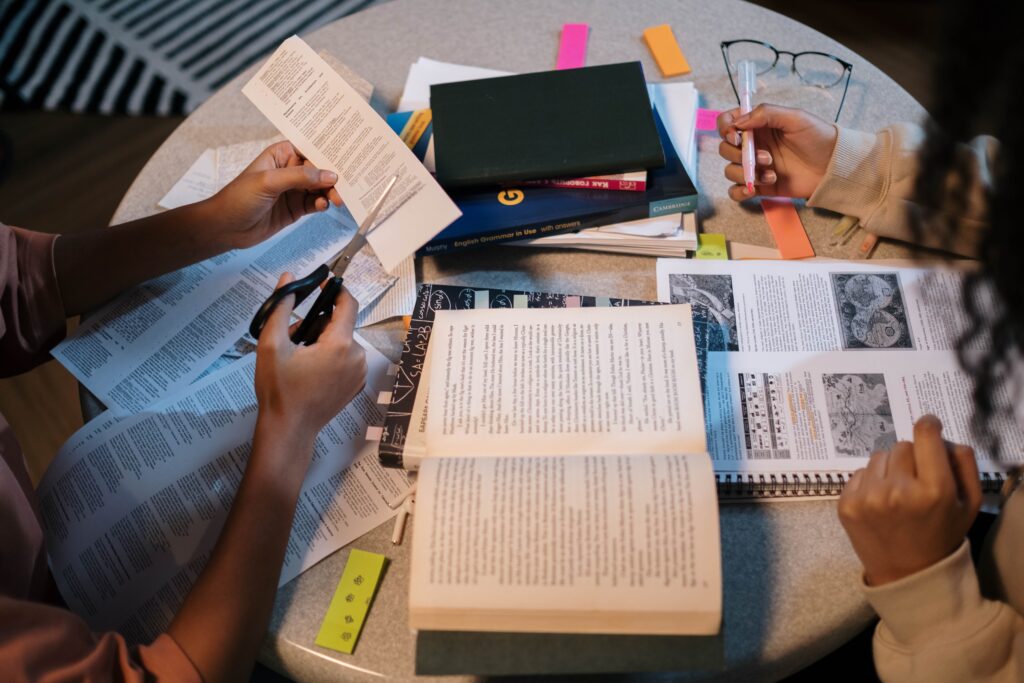
5. EnergyMag Internship
EnergyMag is offering virtual internships for high school and college students interested in increasing the share of renewable energy in the world and gaining work experience in the energy storage industry.
The internships aim to provide students with research and analysis skills that will be valuable for their future professional lives. The virtual internship allows students to complete their internship hours virtually, providing flexibility to fit the experience into their busy personal and professional lives. Additionally, virtual interns enjoy the unique rewards of learning from experts regardless of their geographic location and strengthening their information and computer skills.
The internships are strong resume boosters for employers, graduate college programs, and undergraduate programs.
EnergyMag offers half-time and quarter-time virtual internships. Half-time internships are available in the summer for two to eight weeks, with interns expected to work approximately 20 hours per week. Quarter-time internships are available all year round for one to nine months, with interns expected to work approximately eight hours per week. The internships are unpaid, and interns work from home while maintaining daily electronic contact with EnergyMag and their mentor.
Depending on the student’s graduation date, academic record, and experience, interns will be asked to research and analyze a specific company, technology, or market. The intern will be mentored, briefed, supervised, and assisted in producing a draft analysis report. If the report is publishable, EnergyMag will give the intern an internship Letter of Accomplishment.
The application process for college and high school internships requires an application explaining why EnergyMag should grant an internship, a Skype or voice interview, and a writing sample upon request. College interns are also required to provide their academic record, and high school interns should have at least one honors science or English class with a GPA above 3.25.
EnergyMag believes that internships provide the opportunity for students to learn on-the-job skills that are not easy to acquire at school but will make a big difference in their future professional success, such as learning how to research a scientific or business issue, approach strangers with positions of authority in a friendly and professional manner, analyze and synthesize information from multiple sources, and communicate professionally in writing.
The blog highlights five virtual research opportunities for high school students, providing hands-on experience and research projects in various STEM fields such as mathematics, computer science, physics, neuroscience, and engineering. These virtual research opportunities aim to provide students with a deeper understanding of STEM and develop the necessary skills to succeed in academic and professional careers. Furthermore, these programs help expand knowledge and work on unsolved problems with established researchers from top-tier universities.
Virtual research opportunities for high school students provide a flexible and accessible way to gain valuable experience and knowledge from the comfort of their own homes. These programs aim to foster the intellectual growth and development of high school and middle school students, and inspire them to pursue their interests in these fields.
CCIR connects students to professors at universities and enables them to take classes with them and get publications which can help them get into better colleges. Learn how CCIR can help you live the life of your dreams and get your career on the right path. Apply today !
Related Posts
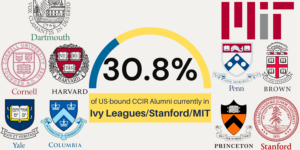
Our Exceptional Alumni: College Admission Results 2020-2023
The ccir minerva scholarship opens doors to exceptional student researchers worldwide.
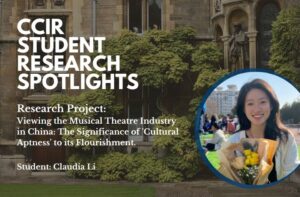
High School Student Researcher Claudia on Viewing the Musical Theatre Industry in China
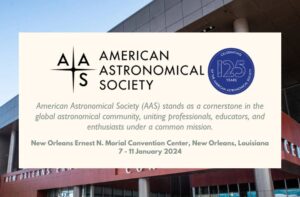
High School Student Researcher Rithwik’s Paper on Multi-Class Anomaly Detection for Astronomical Transients Accepted at 243rd Meeting of the American Astronomical Society

Steps To Write A Great Research Paper

High School Student Researcher Frankie on The Rise of China: China’s Economic Model, Western Liberal Democracy, and the Capital-Driven World Order
Download Programme Prospectus
- Programme structure
- Research course catalogue
- Professor biographies
- Tuition and Scholarship
Start Your Application
Cambridge Future Scholar (Summer 24)
Admission is OPEN
Early Admissions Deadline: May 1
Regular Admissions Deadline: May 15
Rolling Admissions.
1-on-1 Research Mentorship Admission is open all year.
Welcome to Indigo Research , formerly known as Crimson Research Institute (CRI)! You’ve been redirected here from our old website, but don’t worry, we’re still the same team committed to providing our students with the highest quality research experience.
Explore research innovate publish with indigo.
.webp)
Indigo Research students supported since 2019
Indigo alumni acceptance rate to the Ivy Leagues, 2.91x higher than the global average
Academic journals that have published our students’ work
Mentors from the world's leading universities
Indigo Research is the premier provider of academic research mentorship for students in high school and college
Why research.

To get into a great college you have to build a 3 dimensional profile
How indigo research supports students, turn passion into publication, cultivate intellectual curiosity outside class, transform your university applications, forge connections with elite academics, earn college credit from ucsb, indigo alumni admission rates, why students and parents choose indigo.

First, research with us. Then, get admitted to top schools.
Want to add your top schools to our list.
.webp)
Hear from our students

“Working with a professor gave me more freedom and independence in decision making and where I wanted to take the project. The expertise also meant that I could always have ideas reviewed and concepts clarified. My experience with Indigo Research has been truly unique and insightful and has allowed me to push my own interests beyond my original boundaries”

“This program allowed me to acquire knowledge in the field of organizing research work, to understand how the task is formulated and the experiment is conducted. Doing research opens up a new vision of many subjects. For me this is the story of the development of my passion for Computer Science, as well as the discovery of a new interest in mathematics”

“This course has given me the opportunities to improve my skills, to connect with experienced mentors, and has taught me how to better manage my time. I'd recommend this program to future students because it gave me valuable experience for the future. I plan to go into neurosurgery, so taking this course gave me a detailed look at what I'd be dealing with”

“Research is a journey of learning and discovering, and you should definitely maximize the experience by picking an interesting and challenging topic. Don’t pick a topic that is too complicated though. Know your limits, and don’t make yourself feel pressured. Most importantly, be sure to enjoy the experience!”

“Working with my mentor and with Indigo Research has deepened my understanding of the publishing process and of conducting research. I've gained invaluable insight into academic medicine”

“It’s been great working with my Indigo Research Mentor! I have been able to learn from his experience with research projects, learn about a new field of research, and incorporate some tips my mentor has figured out along the way in his PhD in my research project”
How Indigo works

When to start

Develop extracurriculars and research skills to prepare young minds for college and beyond.
.webp)
Strengthen college applications though a unique research project and develop professional skills along the way.
.webp)
Lay the foundation for thesis work, publish your findings, and expand your CV through research and professional support.
Meet a few Indigo mentors
Our mentors.

Research interests: Organic Chemistry, Biochemistry, Catalysis, Carbon-Based Materials
Vladimir graduated from Moscow State University, Chemistry Department in 2017, during his Bachelor/Master. He has visited Utrecht University to study solid-state NMR and its application for protein research, Friedrich-Alexander University to work on synthesis of sp2-carbon-based materials, and Novartis to work on bioconjugates. In 2018, he moved to Friedrich-Alexander University to continue his studies on carbon materials as a PhD student. After his thesis defense in 2019, he began his Postdoc at Martin-Luther University to work on heterogeneous catalysis. In 2022, he joined Pentelute group at MIT, where he is currently working on peptide-protein interactions and drug development.

Research interests: Russian Language and Literature, Russian History, African Literature and History, Philosophy, Comparative Literature, European History
Professor Jeanne-Marie J. research spans Russian language and literature, Russian history, African literature and history, Philosophy, Comparative literature, and European history. Her first book, South African Literature's Russian Soul, is centrally concerned with how Russia's nineteenth-century "Golden Age" of literature and ideas provides a model for the study of South African realist forms and epistemologies, both during and after apartheid. Her second book, The African Novel of Ideas, tells a story of how the novel has negotiated between liberal selfhood and awareness of liberalism's failings across key African intellectual contexts.

Research interests: Machine Learning, Computer Systems, Bioinformatics
Dr. Eric S. has BS, MS, and PhD degrees from Cornell University. His research includes work in dynamical systems, machine learning, system theory, computer systems, communications systems and bioinformatics. He is an Associate Professor of Computer Science at Morgan State University, a public research university in Baltimore, Maryland. Dr. Eric S. also has a breadth of industry experience in the fields of pattern recognition, machine learning, speech recognition, signal processing and power systems. He has been a participating member of the IEEE, Sigma Xi, and Sigma Pi Sigma. Dr. Eric S. is currently working on machine learning techniques for financial data analysis and blockchain applications and is currently a member of the Morgan State University Fintech Center for Blockchain Technology.
April Application Deadline
.webp)

- Master Course List
- STEM Courses
- Social Science Courses
- Project Extensions
- Instructors
- How It Works
- Why Participate
- Student Testimonials
- Examples of Student Work
What is Horizon Academic?
Horizon Academic (HARP) is a trimester-long online research program for extraordinary high school students to refine their interest in an academic subject. Students will develop a college-level research project under the individualized guidance of a professor from a globally renowned university.
How Does It Work?
Horizon scholars choose their own field of inquiry and work with their professor to develop a unique research proposal. after a trimester of reading, writing, and exploring, horizon scholars finish their final projects, most often a 20-25 page research paper. by showcasing a student's very best work, horizon gives students the opportunity to get letters of recommendation, seek outside recognition of the quality of their work, and demonstrate their exceptional talent to universities., how we support student research.

"I got into the Undergraduate Research Opportunity Program at UMICH, largely because of the work I did with Horizon."
John L. Miller Great Neck North High School

"I loved the whole program, I just loved it. It felt like some part of me was doing something that really matters, like I was contributing to something bigger."
Robert College

Meet Danielle's & Gunay's Mentor:
Edoardo gallo assistant professor and director of studies (economics) at university of cambridge.
Dr. Gallo is also the Ajit Singh Official Fellow in Economics at Queens' College, Cambridge and a Fellow at the Cambridge Endowment for Research in Finance. His research sits at the intersection of the economics of networks, experimental economics, and behavioral economics questioning how the structure of social networks causally affects individual behavior and economic outcomes.

"A big thank you to you for all that you've done for me, from the Horizon program to the publication process after. You have gone over and beyond."
Branksome Hall

Meet Darynne's Mentor:
James truncer lecturer at harvard university extension school, former lecturer at stanford university .
Dr. Truncer has taught environmental engineering and environmental systems collapse courses at Harvard & Stanford University. His work has led to an interest in sustainability issues with regard to changing agricultural production, urbanization, resource use, and systems collapse.

"One of the most exciting parts of Dr. Rezvani's class is that he never directly tells us how to think about a problem because it may hinder our intellectual development; he will seek our opinions and encourage everyone to participate in the discussion."
Western Academy of Beijing

Xing (tamia) wentong.
Liaoning Province Experimental High School

Meet Ally's & Tamia's Mentor:
David rezvani research assistant professor at dartmouth college.
David Rezvani has previously taught at Harvard University, MIT, Oxford University, and Boston University. His research interests include political integration, Asian politics, and US foreign policy. Rezvani's work has appeared in the Political Science Quarterly , Journal of Contemporary Asia , Ethnopolitics , and the International Encyclopedia of the Social Sciences .

"I'm attending UCLA for neuroscience and actually decided that I love this major and want to pursue it as my career after completing the Horizon research program."
Dhirubhai Ambani International School

Meet Prarthna's Mentor:
Elisa phd researcher at the university of chicago.
Elisa researches in a clinical addiction and a fMRI memory laboratory, where she hopes to uncover more about the similarities and differences between various types of addictions and how individuals experience substance use and dependence. Her interest lies in the neural basis of motivated behaviors leading to substance abuse, reuse, and maintenance of addiction.

"It’s an opportunity to showcase my work to the entire world. Horizon has invested a lot into helping me through the process."
James Logan High School

Meet Karthik’s Mentor:
Parsa a. research associate at the university of cambridge.
Parsa's work focuses on Statistical Genetics. He has both academic and commercial experience in the application of statistical analysis to generate commercial and scientific value. Parsa also co-founded an online technology platform allowing the open source online generation of content by users.

"It was a great learning experience, and I will carry what I learned throughout college and in my future career."
Canton High School

Meet Harshitha’s Mentor:
Patrick liu phd researcher at the university of oxford .
Patrick studies Physiology, Anatomy and Genetics at the University of Oxford. His research takes a neurobiology approach to understanding the molecular processes underlying sleep homeostasis and how neural circuits are able to temporally integrate information to effect meaningful behavioral output.

"My time with Horizon helped me prepare extensively for research in similar fields at university!"
Jayashree Periwal International School

Meet Diya's Mentor:
Nadia nasreddin phd researcher at the university of oxford.
Nadia works at the Wellcome Centre for Human Genetics at the University of Oxford. Her research focuses on colorectal cancer and inflammatory bowel disease, looking into the link between inflammation and tumorigenesis, with the ultimate goal of improving patient management and treatment.
Examples of Our Students' Work
Horizon Academic alumni may submit their final manuscript to be included in our pre-print server, enabling them to quickly share their work with others.
Students interested in pursuing publication opportunities may apply to external journals, or they may apply to have their papers published in the Horizon Academic Research Journal.
Our Purely Online Program, By the Numbers

“45% of incoming CalTech students included materials in their college applications documenting their own past research. ”
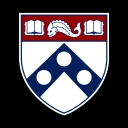
“Nearly 1/3 of the admitted students engaged in academic research during their time in high school.”
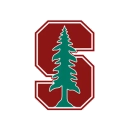
Stanford emphasizes the importance of ‘Intellectual Vitality’ in their admissions decisions.
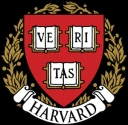
“Substantial scholarship“ and “academic creativity“ are needed for Harvard's top academic rating - increasing chances by nearly 8x.
Polygence students report acceptance rates 2-5x the national average.
Top schools have demonstrated the growing value of research for admissions., why choose polygence, a project that’s one of a kind - like you.
Polygence offers the most personalized mentored research experience - you choose the subject, research question and outcome of your project, so you can explore and create what you love.
The most flexible research program
High School Students are already busy with classes, extracurriculars and more - so we offer start dates throughout the year and allow students to set the pace that’s right for them and their project.
Tailored mentorship just for you
We ensure strong mentor-student fit by leveraging our extensive network of experts from top universities to match you with a mentor who shares your unique interests and passions.
A Project as Unique as You
Your program is tailored to your individual passion – you choose the field and the topic to research.
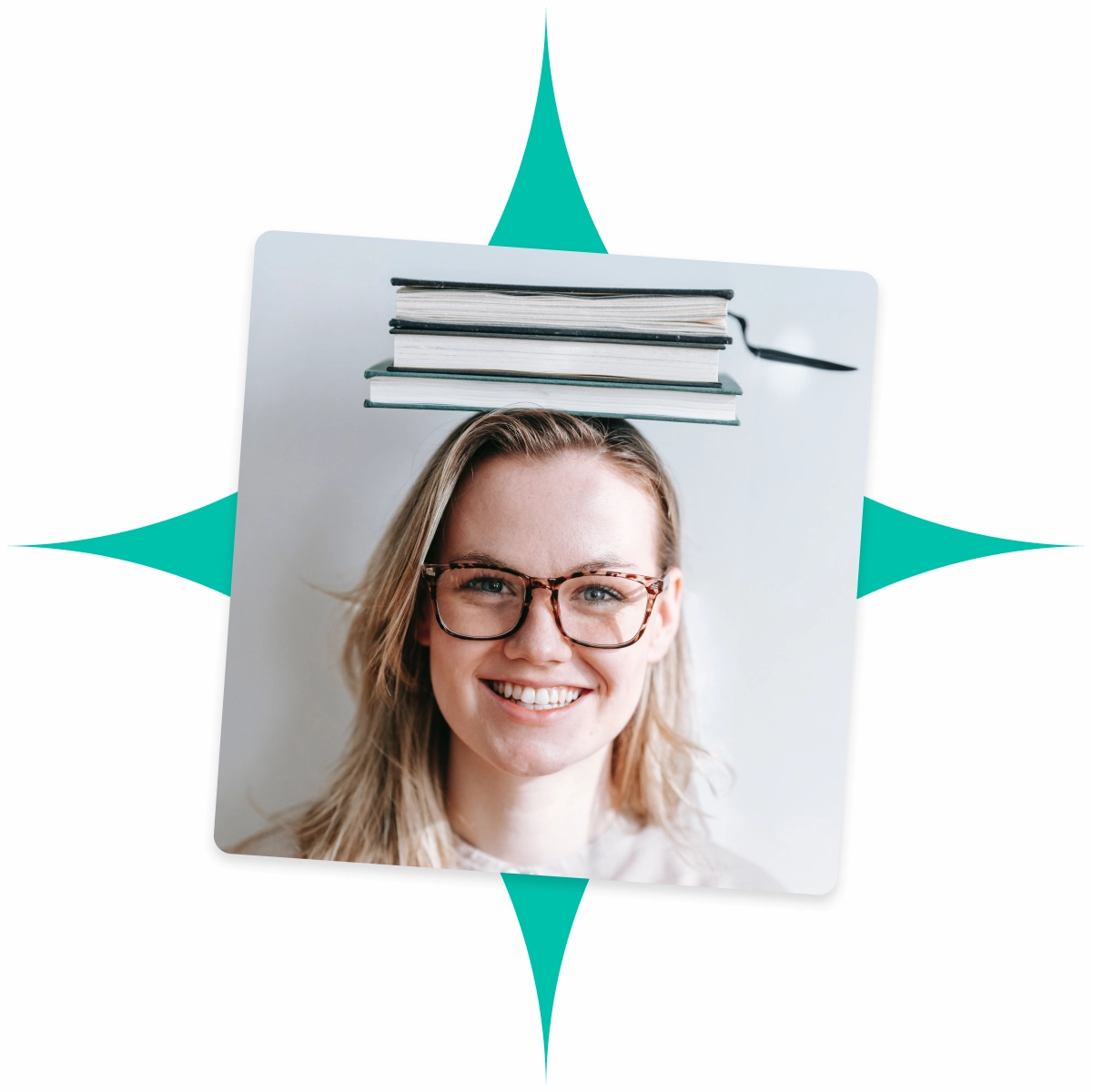
Find the right program for you
Core Program
For High School students who want to turn their passion into a tangible outcome with the guidance of an expert mentor. You’ll dive deep into a research topic of your choice over 10 one-on-one sessions.
For students who are unsure about what to study or weighing multiple options, this 3-session add-on to our Core program helps you find a topic that you’ll love.
Premium Showcasing Support
For students who are excited to publish, compete or otherwise spotlight their work, this 3-session add-on provides expert showcasing guidance.
Not ready for a full research project yet?
Check out our shorter programs to find your passion.
- Pathfinders career discovery program
- Pods short-term group research program
- Personality Quiz to find your academic persona
Projects Beyond Research Papers
The most flexible mentored research program that lets YOU choose the output to work towards - from published research papers, to podcasts, to prototypes of inventions and anything in between.
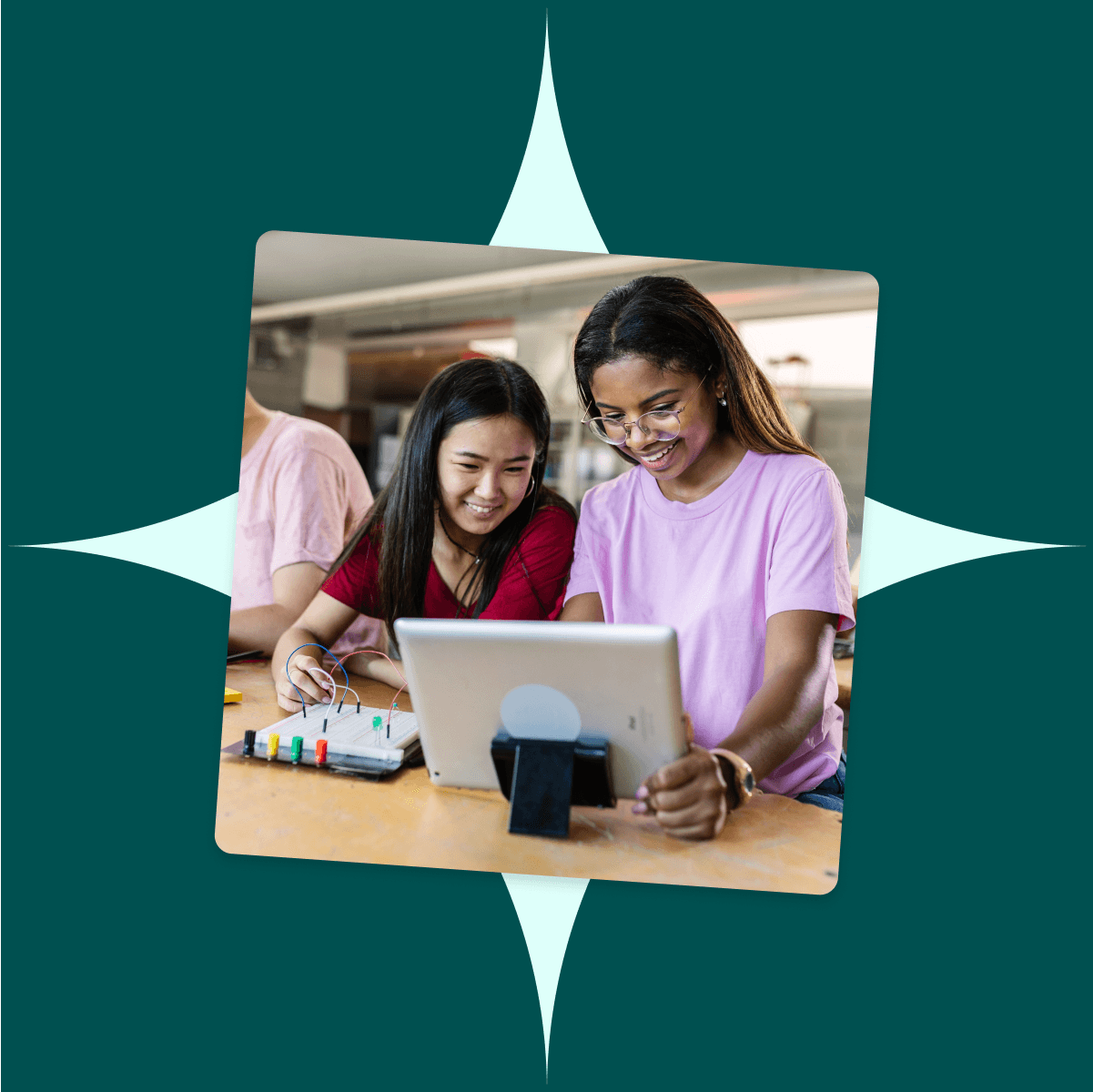
"The idea that you can do anything, or you can have an effect on a really big problem…that’s something I developed through Polygence and with my mentor."
Your Ideal Match
Polygence has the most extensive network of PhD-level mentors from top universities. We will find your ideal match in any field or topic of interest.

PhD candidate at Carnegie Mellon University
”She was an absolute gem of a research mentor! Her guidance was like a compass in the world of academia. Kimi made the research journey feel less like a maze and more like a scenic route.”
Polygence student
Polygence by the numbers
Polygence projects are a meaningful addition to a student’s intellectual growth and college application
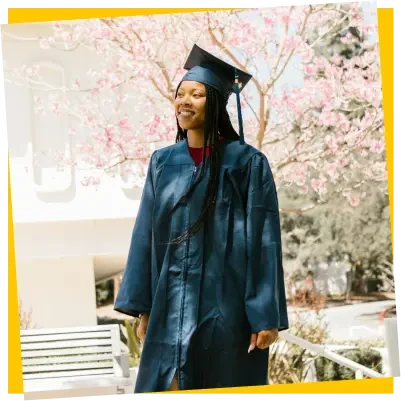
99% of Polygence alumni
feature their projects on their college applications
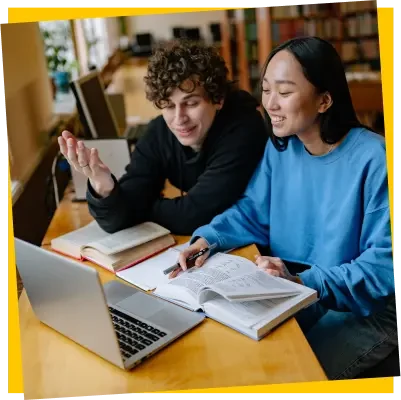
3 out of 4 admissions officers
say research experience weighs favorably in college applications
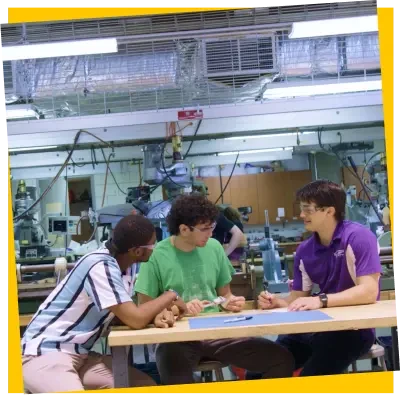
96%+ of Polygence students
say we meet or exceed their expectations of the program

Polygence was recently selected as one of the top 25 most promising startups in education technology
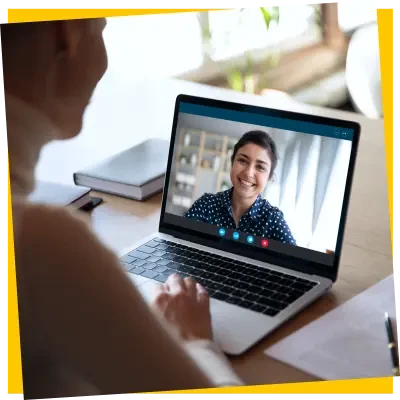
2000+ Expert mentors
from top universities with over 40 subjects represented
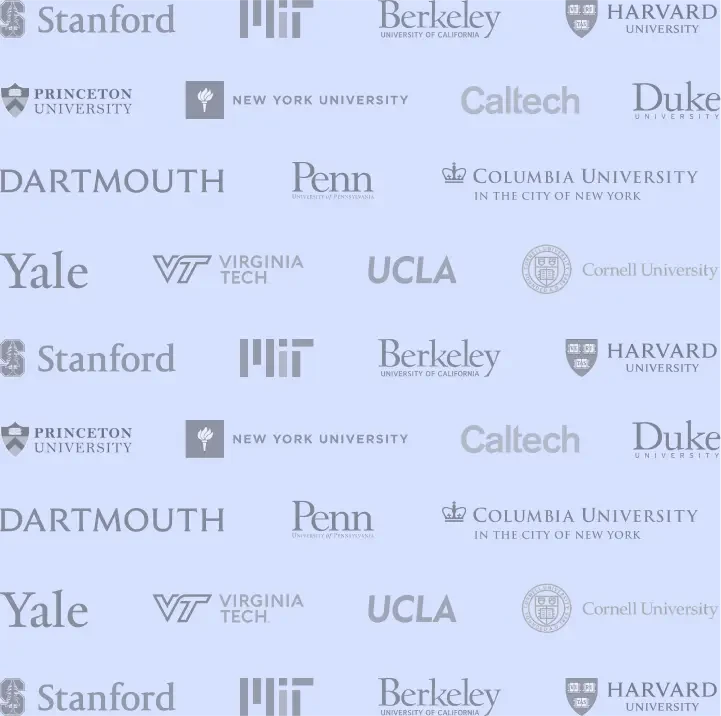
Interested to learn more?
Explore our full admissions outcomes.
More From Forbes
Seven research-focused virtual summer programs for high school students.
- Share to Facebook
- Share to Twitter
- Share to Linkedin
The pandemic brought about many changes to how students learn, including having more access to digital learning platforms. Virtual summer programs have continued to be popular amongst busy high school students as a way to engage in enriching experiences, even if they don’t have time to attend in person.
Virtual summer programs can be a great way for students to gain practical experience from home.
Virtual summer programs can be a good compromise for students—they typically require a few hours of commitment per day, meaning students can juggle multiple activities and still build their resumes. However, while these programs do have their advantages, they also have some drawbacks.
Pros Of Attending A Virtual Summer Program
- More flexible. Attending a virtual summer program often requires less time commitment on the student's part. Many in-person summer programs have the entire day planned out, from waking up at 8 am to lights out at 10 pm. Conversely, most virtual programs typically have a few hours of class time each day, but then require participants to do homework on their schedule. That means students can also be volunteering, working a summer job or other activities while also attending the virtual summer program. Since the programs are virtual, students can also participate all over the country, giving them greater freedom in choosing a program that truly interests them, and not just picking from the ones that are offered close by. International students might also be able to attend virtual programs.
- Diverse course offerings. Virtual programs will cover a variety of different topics from business to research to writing. Students can explore areas potentially not covered in their high school curriculum. Even though the programs are virtual, it is still possible for students to get practical experiences in a subject area they are interested in.
- Lower costs. Without the cost of room and board, many virtual programs are less expensive than in-person programs. In addition, students will also save on travel, meals, and other fees associated with in-person programs.
Cons Of Attending A Virtual Summer Program
- Fewer interactions with peers and instructors. Compared to in-person programs, virtual programs offer fewer opportunities for networking due to the lack of face-to-face interactions. While some virtual programs emphasize group work or discussions, it might not feel the same compared to students who attended an in-person camp.
- Technology Issues. With anything related to online learning, there might be technology challenges that occur. Fast internet is essential when joining a virtual program.
- Student accountability. Because there is less interaction between the instructor and the participants, the students will need to hold themselves accountable to complete the homework assignments. They also will need to prioritize learning in a distraction-free environment so they can remain focused on the coursework.
Virtual summer programs can be a good alternative for students who already have a packed summer schedule, but still want to get a learning experience beyond what their typical high school curriculum might offer. However, before committing to a virtual summer program, make sure to take into account the students' learning style, preferences and overall goals. While there are some potential drawbacks to virtual programs, in many cases, the pros outweigh the cons, leading to a productive summer at a virtual summer program.
Best High-Yield Savings Accounts Of 2024
Best 5% interest savings accounts of 2024, research-focused virtual summer programs, the virtual waksman institute summer experience (vwise).
Location : Virtual
Dates : 8/12-8/23/2024; Monday through Friday from 9-10:30 am and 1-3 pm ET.
Cost : $500
Age requirements: Students must have completed a high school-level biology course
Deadline : Applications are accepted on a rolling basis. The $500 non-transferable and non-refundable fee is due two weeks after your application is acknowledged. The program is expected to reach capacity.
Overview : While this is a virtual program, it still allows students to complete a research project in molecular biology and bioinformatics. Students will participate in online seminars conducted by Rutgers faculty, analyze gene sequences using bioinformatic tools, and submit DNA sequence analyses for publication.
Rosetta Institute of Biomedical Research
Dates : 6/10-6/21/24 (Introduction to Cellular and Molecular Medicine), (7/8-7/19) (Medicinal Chemistry) and 6/24-7/6 and 7/22-8/2 (Medical Bioinformatics)
Cost : Prices range from $430-$1050
Age requirements: 12-18 (Introduction to Cellular and Molecular Medicine), 14-18 (Medicinal Chemistry) and 14-18 (Medical Bioinformatics)
Deadline : Rolling
Overview : Three virtual online workshops are offered. For students who want an introduction to research and how to use online tools to analyze biochemical data, these virtual classes could be a great option.
Young Scholars Program-REACH
Dates : 7/15-7/19/24
Cost : $100
Age requirements: High school student (graduating seniors are also eligible)
Deadline : 3/15/2024
Overview : At the Center for Neurotechnology (CNT) at the University of Washington, students will get early exposure to neural engineering and neuroscience which can help them begin basic preparation for a college major in a STEM field. Students will also receive an introduction to neuroethics, scientific communication and the latest developments in brain-computer interfaces.
INSIGHT High School Program
Dates : 7/1-7/26/2024
Cost : $2,200
Age requirements: Rising 10-12th grade, including graduating seniors
Deadline : 5/20/2024 (application opens 2/26)
Overview : Students will be introduced to medical and public health fields, with an emphasis on social justice and health disparities. Students will focus specifically on injury and violence prevention research. Some of the activities they will participate in include a public health research project, attending skill-building workshops and virtual injury and violence prevention seminars.
Rising Researchers
Dates : 3 summer sessions are available: 5/21-6/20/24, 6/18-7/25, 6/26-7/27
Cost : $3,500, early registration discounts are available
Age requirements: Rising 8th-grade through high school
Overview : In this summer program, a sister company of Moon Prep, students have the option to explore a variety of research subjects. These include studying human diseases or microbiology through Artificial Intelligence and Machine Learning algorithms and investigating social determinants of health in cardiovascular disease. Within a small class group, students collaborate with a seasoned research mentor to write and publish a research paper. At the end of the program, participants showcase their research findings in a poster symposium attended by their peers and invited guests.
Stanford AI4ALL
Dates : 7/8-7/26/24
Cost : Varies
Age requirements: Rising 10-12th grade
Deadline : 2/20/24
Overview : Stanford AI4ALL’s goal is to increase diversity in the field of artificial intelligence. This program allows students to gain hands-on experience while learning from research mentors and participating in group research projects. Students will learn how AI can be used in a variety of different fields, including medicine, combating poverty, and disaster response.
Research Service-Learning Project: Self-Healing as a Health Right for All
Dates : 7/8-8/15/24
Cost : $1,995
Age requirements: Rising high school juniors and seniors
Overview : This live synchronous online course will teach students about research, including how to read and understand scholarly articles, educational research, and quantitative and qualitative research. Students will work with a nonprofit, Yoga 4 Philly, to design research metrics to help underserved children in Philadelphia receive benefits from local yoga teachers.
- Editorial Standards
- Reprints & Permissions
Join The Conversation
One Community. Many Voices. Create a free account to share your thoughts.
Forbes Community Guidelines
Our community is about connecting people through open and thoughtful conversations. We want our readers to share their views and exchange ideas and facts in a safe space.
In order to do so, please follow the posting rules in our site's Terms of Service. We've summarized some of those key rules below. Simply put, keep it civil.
Your post will be rejected if we notice that it seems to contain:
- False or intentionally out-of-context or misleading information
- Insults, profanity, incoherent, obscene or inflammatory language or threats of any kind
- Attacks on the identity of other commenters or the article's author
- Content that otherwise violates our site's terms.
User accounts will be blocked if we notice or believe that users are engaged in:
- Continuous attempts to re-post comments that have been previously moderated/rejected
- Racist, sexist, homophobic or other discriminatory comments
- Attempts or tactics that put the site security at risk
- Actions that otherwise violate our site's terms.
So, how can you be a power user?
- Stay on topic and share your insights
- Feel free to be clear and thoughtful to get your point across
- ‘Like’ or ‘Dislike’ to show your point of view.
- Protect your community.
- Use the report tool to alert us when someone breaks the rules.
Thanks for reading our community guidelines. Please read the full list of posting rules found in our site's Terms of Service.
Top Online Research Opportunities for High School Students

Reviewed by:
Former Admissions Committee Member, Columbia University
Reviewed: 5/10/24
Read on to learn about the best online research opportunities for high school students and how to strengthen your college profile !
Enrolling in an online research program can help set you up for college success, particularly if you're interested in undergraduate research.
This guide will teach you what you need to know about the benefits of virtual research, what to look for in research opportunities, and a list of the best online research opportunities for high school students !
Top 20 Online Research Opportunities for High School Students in 2024
These are some of the best online research opportunities for high school students:
1. The Lumiere Research Scholar Program
Academic requirement : Unweighted GPA of 3.3 or higher
Duration : 12 weeks
College credit : No
This research program was founded by Harvard and Oxford scholars, allowing students to work one-on-one with Ph.D. mentors to create an "independently-developed research project."
2. Horizon Academic (HARP)
Academic requirement : Unweighted GPA of 3.67 or higher
Duration : Three months
HARP is a trimester-long research opportunity . Students work with a professor as they develop a college-level research project. Most students complete a 20+ page research paper by the program's end.
3. Pioneer Academics
Academic requirement : Demonstrated academic excellence
Cost : $6,850
Duration : Three to four months
College credit : Yes
Many top colleges hold Pioneer Academics in high regard : “it’s the only online credit-bearing research program” offering STEM, social sciences, and humanities disciplines. Students work one-on-one with U.S. university professors, and the program is open to students worldwide.
4. Polygence
Academic requirement : Not required
Cost : Starts at $2,795
Duration : Four to six months
Polygence offers one-on-one mentorship with a research expert in the field and flexible scheduling. Students in the program can earn college credit from the University of California, write a research paper, and pursue “passion projects” such as starting a podcast, writing a novel, publishing a paper, and more.
5. Cambridge Future Scholar Programme
Academic requirement : Demonstrated academic excellence
Cost : $3,900
Duration : 13 weeks
This online research opportunity is taught by professors from Oxford, Cambridge, MIT, Stanford, and select Ivies . Students can choose from 34 STEM, Business, Social Sciences, and Humanities courses. Outcomes include a research paper and recommendation letter from an Oxbridge or Ivy League faculty member.
6. CrowdMath
Academic requirement : N/A
Cost : Free
Duration : One year
CrowdMath is an open project run by MIT Primes and the Art of Problem Solving. The purpose is for students to “experience research mathematics and discover ideas that did not exist before.” Students can comment on the message board to try and solve complex problems.
7. Indigo Research
Cost : Starting at $3,800
Duration : 13 to 48 weeks depending on program
Their High School Research Program pairs students 1:1 with professors and mentors from top universities in the US and UK to develop their own research project. Indigo is known for having some of the strictest education requirements for mentors (including professors from Ivy League universities), as well as the most flexible research program, allowing students to tailor personalized mentorship sessions according to their schedule.
8. Summer Academy for High School Students
Cost : $1,200 for early registration, or $1,500
Duration : One month
This program offers hands-on experience in architecture, interior design, and landscape design for students. Virtual activities include exploring buildings, taking tours, and using design tools from home. Students get access to design software, a sketchbook, and a 3D printing pen to build portfolios for college applications.
9. Leadership Institute
Cost : $5,313
The Leadership Institute at Brown University empowers high school students who care about social justice to make a difference. Students join a supportive community to discuss important issues and find solutions. They learn skills like listening, problem-solving, and teamwork. By the end, they create a plan to bring positive change to their communities.
10. BETA Camp Summer
Cost : $3,000
BETA Camp is an online program for teens with big business ideas. With expert guidance and a supportive community, they learn how to turn their startup ideas into reality. They'll develop skills like researching, marketing, and pitching to investors.
11. Clinical Neuroscience Immersion Experience
Cost : No cost
Duration : Two weeks
This Stanford summer program in Behavioral and Psychological Sciences teaches students about cutting-edge research in neuroscience, psychiatry, and psychology. Students work together on a final project, which they present to Stanford professors, peers, and families at the end.

12. Summer College – Research Immersion Program
Cost : $1,985, plus $65 application fee
Duration : Six weeks
Syracuse University’s Summer College: Research Immersion Program (SCRIP) is a six-week program for high school students. During this time, they work closely with faculty on research projects and present their findings.
13. Summer Writing Online
Cost: $2,200
Duration: Three weeks
The University of Iowa has a renowned creative writing program that offers a three-week intensive course for high school writers. Students learn from Iowa's respected faculty, get workshop feedback, and hear from famous authors. It's a great opportunity for young writers seeking guidance and support for their creative projects this summer.
14. Summer Session for Pre-College Students
Cost: $4,850 for one course credit
Duration: One month
High school students can join Yale summer classes with Yale undergrads, a cool chance to dive deep into a subject they love or try something new. They'll get the real feel of studying at a top-notch university, earn college credit, and meet Yale's awesome faculty.
15. Secondary School Program
Cost: $3,700 per four credit course, plus $75 application fee
Duration: Seven weeks
This program offers more than 200 courses. It's a great chance to explore college-level research on a topic you like, taught by famous professors.
16. Pre-College Summer Programs
Cost: $1,950 (one credit), $562 (non-credit)
Duration: Two to 10 weeks
College credit : Depends on the program
Johns Hopkins University offers many online programs for high schoolers. These courses let you learn at your own pace and include live teaching. They have different time options so that you can fit them around your summer plans.
17. International Summer School for Young Physicists (ISSYP)
Duration: Two weeks
ISSYP has been teaching future physicists for 20 years. This two-week online program is for high schoolers who've taken physics and want to study it in college. Through interactive sessions with peers and experts, they'll learn about modern physics topics like quantum mechanics and black holes. It's perfect for juniors or seniors interested in physics research.
18. Summer Program
Cost: $1,075-$1,375 per course
AwesomeMath has an online summer program for high schoolers who are good at math and want to ace competitions like AMC, AIME, or IMO. The program has Algebra, Combinatorics, Geometry, and Number Theory courses at four skill levels, spread over three summer sessions.
19. Economics for Leaders (EFL)
Cost: $800 plus $35 application processing fee
Duration: One week
This summer program teaches high schoolers how to use economics in decision-making and become leaders in public policy. Taught by economics professors and leadership experts, the classes are hands-on and include group projects. It's perfect for students who want to research economics and public policy.
20. Medical Research Program
Cos t: $1,495 - $1,795
Duration : One to four weeks
Georgetown University has a special online program for high schoolers who want to do medical research in college. Students learn about clinical research, evidence-based medicine, and ethics. They'll create their study and turn it into a scientific paper. This mentorship program is great for anyone interested in medical school or clinical research.
These are some of our top picks, but it doesn’t stop here! Taking initiative to find research opportunities will look excellent on your college application, so you should keep looking until you find the right one for you.
In-Person vs Online Research Opportunities: When to Choose
Deciding between in-person and online research opportunities depends on various factors. In-person research can offer hands-on experience and direct interaction with mentors and equipment. It's ideal for those who prefer a traditional learning environment and thrive in face-to-face interactions.
On the other hand, online research provides flexibility and accessibility, allowing students to participate from anywhere with an internet connection. This option suits individuals with busy schedules or those who prefer working independently.
Benefits of Virtual Research Opportunities for High School Students
In general, research exposure is important for high school students. According to the American Psychological Association , research for high school students can help provide early career exposure, develop necessary life and career skills, and build and expand a professional network.
However, virtual research opportunities for high school students in particular have added benefits:
- Generally lower costs compared to in-person programs
- No need to navigate transportation, accommodations, or any other travel logistics
- Flexibility (depending on the program)
- A mix of guided and independent work
Overall, virtual research opportunities for high school students mean they can get valuable research experience with fewer barriers, such as high costs, time, and distance.
What to Look For in an Online Research Opportunity
There are three main factors you should consider when looking for the best online research opportunities for high school students:
- Who offers the program : Check your source (an organization, school, etc.) and learn more about them. Are they reputable? Will partnering with them give you the tools you need to succeed?
- The program’s value : Consider what your role would be in the program and what skills you'd learn. Does the program offer enough guidance for your success? Does the program offer mixed learning through webinars and workshops? Is the research you'd be doing relevant to your passions?
- The time commitment/flexibility : Will the program's schedule fit with your own? Do you have to attend live meetings/lectures, or are they pre-recorded? Can you speak one-on-one in real-time with a research expert? Consider time commitments and flexibility to see if a program works for your busy schedule.
To summarize, look for programs with a reputation for excellence, offer guidance and the opportunity to hone or build new skills, and work for you when added to your schedule.
Final Thoughts
Virtual research opportunities for high school students can help you explore your interest areas, gain the necessary skills you'll need for undergraduate research, and build your professional network. Before applying, consider the program's source, value, and time commitment.
Remember, the best online research opportunity for any high school student is one that you’re passionate about participating in. Whether you're interested in STEM, business, pre-med, or humanities, there’s a research opportunity waiting for you.
Get A Free Consultation
You may also like.

20 Hardest SAT Math Questions With Explanations

How to Get Into Research Science Institute (RSI)


Best Online Bootcamps and Online Research Programs for High School Students
- February 3, 2021
- Career Guidance , College Admission Guidance , Parents Must Read , Study Abroad , Under Graduate
Online Courses and pre-college summer programs are great for profile building and improving college admission chances. However, if you are aspiring to stand out really well and aiming for admissions at the top elite and Ivy League colleges , research experience is more than handy. Here are some of the best-in-class online summer programs and online research programs for high school students 2022 .
Best Online Research Programs for High School Students
College is a giant academic leap from high school, and as such, it requires careful preparation, often beyond what high school can provide. Thus, students (and their parents) often spend the summer after senior year brushing up on skills that will give them the competitive edge they need to succeed in college and in their future careers.
Summer 2020 showed us that students will be able to find activities that work in a virtual environment, and in doing so, they’ll learn a little more about themselves. With some creativity, they can find new ways to engage in their interests and develop new skills. Bonus points if they make a positive impact on others in their community in the meantime.
Online Research Programs for High School Students
Online research programs for high school students offer a unique opportunity to demonstrate their skills in research and pursue the possibility of having their findings published.

A research program can demonstrate that you willingly take on challenging material and that you thrive amid competition. Your activities list will tell colleges that not only are you ready for college, but you also have experience in the medical field.
The opportunity to have your scientific findings from a summer program published or presented in the scientific community is the ticket to sending your college applications to the next level.
Since many summer research programs themselves are selective, they provide you with experience as they mimic the college application process.
They can range anywhere from one week to last the majority of your summer break. The prices range greatly too, with some free options alongside programs that cost thousands of dollars.
You can use this list as a starting point for finding an online research program or summer pre-college program that matches your intended medical focus.
Now, let’s have a look at the best online summer programs and online research programs for high school students.
- Lumiere Education
Founded by Harvard & Oxford researchers, the Lumiere Research Scholar Program is a selective research program for high school students. Students work 1-1 with a research mentor from a top university to develop a full-length, undergraduate-level research paper. The program offers the opportunity to do research in any academic field of your choice, ranging from machine learning and economics to physics and history.
In the 2020-2021 school year, over 1500 students applied to the program. An analysis of ED/EA admissions of former Lumiere students showed that alumni were 26% more likely to be accepted to the top ten universities in the US.
Lumiere also helps students with the publication process for their research. Students’ past research projects have gone on to be finalists at MIT Think, published in journals like the Cornell Undergraduate Economic Review, and have won competitions like Regional ISEF Regeneron fairs.
Lumiere also provides scholarships to students whose families make less than $35,000 per year (US applicants) or 15 lakh rupees per year (Indian or non-US applicants). Apply Now for the Summer 2022 cohort .
Horizon Academic (HARP) is a trimester-long online research program for extraordinary high school students to refine their interest in an academic subject. Students will develop a college-level research project under the individualized guidance of a professor from a globally renowned university.
Students choose their own subject area and work with a professor, post-doc, or PhD student to develop a unique research proposal. After a trimester of reading, writing, and exploring, students finish their final projects, most often a 20-25 page research paper. By showcasing a student’s very best work, Horizon gives students the opportunity to get letters of recommendation, seek outside recognition of the quality of their work, and demonstrate their exceptional talent to universities.
Research Subject Areas:
- International Relations
- Machine Learning and Biotechnology
- Cancer Biology (CRISPR)
- Neuroscience
- Protein Physics
- Formulation Chemistry
- Ancient Greek-Roman History
Application Link: https://www.horizoninspires.com/application
Timings: Spring and summer every year
It’s another platform that provides opportunities to high school students to conduct research projects online. The platform allows students to connect with an expert mentor online and develop a college-level research project. The projects allow students to showcase their work through a publication, conference presentation, or creative piece.
Students need to have a solid idea of what they want to study and preferably some research ideas as well. Here are some of the projects done by previous students .
Application Link: https://app.polygence.org/user/register
Timings: Mainly summer; however, students can do projects on a rolling basis as well
Pioneer Academics
It’s a great option to do a research project online and earn credits from a US college. Pioneer is well respected for its rigorous academic standards which apply to both the faculty members and the students.
The Pioneer Research Program provides undergraduate-level research opportunities to talented, intellectually motivated high school students (and college students) from around the world. It is the only online credit-bearing research program for high school students that offers STEM, social sciences and humanities disciplines.
In the Pioneer Research Program, selected students to work one-on-one with leading US university professors in advanced study and research of a topic of their interest, culminating in a full-length research paper. The program is conducted entirely online, allowing high school students from all over the world to participate.
Application Link: https://app.pioneeracademics.com/html/applicationform.php?save=true&new_site=set
Timings: Spring and Summer
CrowdMath (a joint program by the Art of Problem Solving and MIT Primes)
It’s a massive online collaborative year-long research project open to all high school (and college) students around the world.
Students get a unique opportunity to collaborate on a large research project with top-tier research mentors and an exceptional peer group. MIT PRIMES and Art of Problem Solving are working together to create a place for students to experience research mathematics and discover ideas that did not exist before.
Link: https://artofproblemsolving.com/polymath/mitprimes

Other Top Online Research Programs for High School Students
International Research Institute of North Carolina (IRI-NC)
- ScholarLaunch
- BioChemCoRe
- J Craig Venter Institute
- Apple World Wide Developers Conference
- Congressional App Challenge
- Google Code Jams
- InternWorks
- UCI Summer Premed Program
- Anson L Clark Scholar Program
- Cambridge Future Scholar Programme
Best Online Winter Bootcamps for High School Students (2021 – 2022)
Biotech-Bioinformatics Bootcamp for Grade 8 – 12 Students [Starting from Dec 27, 2021]
AI/Data Science for Biology Bootcamp for Grade 9 – 12 Students [Starting from Dec 27, 2021]
Energy, Environmental Science & Sustainability Bootcamp for Grade 7 – 12 Students [Starting from Dec 20, 2021]
Top Online Summer Courses & Summer Programs
Online pre-college summer programs on engineering.
- Johns Hopkins Biomedical Engineering Innovation
- Syracuse University Summer College
- Harvard Pre-College and Secondary Programs
- Wake Forest PreCollege Programs
- Summer STEM Institute
- NASA Learning at Home
- Jerome Fisher Program in Management & Technology
- edX Engineering
- Stanford Summer Institutes
- Summer Discovery
- Camp Euclid
- Future Engineers
- MIT Online Science, Technology, and Engineering Community (MOSTEC)
- Stony Brook University – Garcia Center for Polymers at Engineered Interfaces
- Stony Brook – Simons Summer Research Program
- MIT Research Summer Institute
- Hampshire College Summer Studies in Mathematics
- The Ross Mathematics Program
- Program in Mathematics for Young Scientists (PROMYS)
- Carnegie Mellon University SAMS Program
- Stanford Mathematics Camp
- Bucknell Engineering Camp
Best Online Summer Courses on Business & Entrepreneurship
- Temple University Summer Pre College Program – Sports Management
- University of Massachusetts Amherst – Entrepreneurship
- Quarter Zero – Entrepreneurship
- Washington University
- Emory University
- Oxford Scholastica Academy
- University of Notre Dame Summer Scholars
- USC Summer Programs
- Columbia University Summer High School Programs
- Boston University High School Honors Programs
- Business Strategy, entrepreneurship and Digital Marketing at Stanford online
- Cornell Summer Programs
- Kelley School of Business – Young Women’s Institute
- Bentley WallStreet 101
Best Online Summer Programs on Computer Science
- Emory University
- iD Tech Online Coding Camp
- Stanford AI Scholars Live Online
- New York Academy of Science
- AI, Logic, Data Science and Programming at Stanford
- Digital Media Academy
Best Online Summer PRE-MED Programs for High Schoolers
- Pharmacy Summer Institute for High School and College Students
- Georgetown Summer Medical Academy
- University of Vermont Online Summer Academy
- Austin Community College
- Brandeis Pre-College Programs: Global Health and Social Justice
- National Institute of Health Summer Institute Program
- Stanford Institutes of Medicine Summer Research Program
Top Online Summer Programs on Psychology for High School Students
- Michigan Math and Science Scholars
Online Pre-College Programs on Creative Writing
- The Iowa Young Writers’ Studio
- Young Arts Creative Writing Competition
- Scholastic Art & Writing Contests
- Polyphony Lit
- New York Times Summer Academy
- Medill-Northwestern Journalism Institute
Top Online Summer Programs on Liberal Arts for High School Students
- Emory University
- Academy of Art Pre College Experience
- Art of Problem Solving
- 21st Century Leadership Institute
- Cleveland Institute of Music Preparatory Division
- The Lukeion Project (Classics)
- Foundation for Teaching Economics
- Princeton Summer Journalism Program
Recommended Articles:
Free Online Courses for High School Students in 2021
Free Summer Programs for High School Students in 2021
Featured Image Source: The Better India
References: 1 , 2 , 3 , 4 , 5 .
Share this:
Discover more from stoodnt.
Subscribe now to keep reading and get access to the full archive.
Type your email…
Continue reading
- Success Stories
- AI Scholar Program
- Startup Internship Program
- Research Scholar Program
- GOALS Academic Support Program
- Test Prep Program
- Passion Project Program
- For Families
- For Schools
- For Employers
- Partnerships
- Content Guides
- News And Awards
- College Admissions
- Events and Webinars
- Applications
- Research Projects
40 Incredible Research Opportunities for High School Students
Madeleine Karydes
Lead admissions expert, table of contents, start your search for your dream research opportunity, 40 incredible research opportunities for high schoolers, 1. research mentorship program, 2. aspiring scholars directed research program (asdrp), 3. quarknet summer research program, 4. student research institute, 5. student research internships, 6. simons summer research program.
- 7. Summer Research Experience Program
8. WYSE Summer Engineering Camp
- 9. WYSE Young Scholars Summer STEMM Program
10. Biomedical Research Academy
- 11. Chemistry Research Academy
- 12. Experimental Physics Research Academy
- 13. Neuroscience Research Academy
- 14. Social Justice Research Academy
15. Medical Sciences Summer Institute
16. high school summer research experience, 17. summer science research experience, 18. medical institute summer research program (simr), 19. grips program, 20. summer student research program, 21. educational pathways for cancer research, 22. future scientist program, 23. kimberly querrey summer research program, 24. student research apprentice program, 25. summer experience for students, 26. research in the biological sciences (ribs), 27. high school summer internship program, 28. summer high school research program, 29. biomedical research workshops, 30. college now stem research academy, 31. bioengineering research programs, 32. life sciences research program, 33. marine science research program, 34. school of medicine research program, 35. business research program, 36. summer research program, 37. high school internships with aspirnaut, 38. student volunteer program, 39. student scholars program, 40. full research programs.
Stay up-to-date on the latest research and college admissions trends with our blog team.

Why are research opportunities for high school students in 2024 so exciting? Well, there are a few reasons. Firstly, teenagers in the 21st century are coming of age during a thrilling era of cutting-edge scientific development. Technology advances exponentially every day, breaking down barriers to interdisciplinary knowledge. What’s more, high school students have unprecedented access to research opportunities that can significantly enhance their academic and professional futures. Under the right guidance, research experience can add a serious competitive edge to a young student’s resume.
It’s true. Engaging in research not only cultivates critical thinking, problem-solving, and analytical skills for young adults, but also provides a platform for today’s students to contribute to real-world advancements and innovations. As we step into 2024, the breadth and diversity of research opportunities available to high school students are more varied than ever, encompassing fields from the sciences and engineering to the humanities and social sciences.
Are you excited yet? Let’s dive into what options are available.
This article explores the myriad of incredible research opportunities accessible to high school students this year, detailing programs, internships, and competitions that can help aspiring scholars gain invaluable experience and make meaningful contributions to their chosen fields .
Whether your interest lies in laboratory research, social science studies, or interdisciplinary projects, there is an opportunity waiting to help you unleash your potential and prepare for the future. Let’s get this research party started!

Next up we have a list of some of the best research opportunities out there for high school students in 2024, presented for you to browse. These options are presented in no particular order.
Along with their mentor, students will learn about research techniques, gain insight into professional research-based opportunities, and mature their academic goals. The GRIT talks lecture series will connect students to some of the best minds within the UC Santa Barbara research community as they present their ground-breaking research and innovative technology.
- Apply to : University of California, Santa Barbara
- Age Eligibility : Freshman (9th), Sophomores (10th), and Juniors (11th)
- Location : Santa Barbara, California
Students participate in research projects across various subjects in STEM, including chemistry, biology, computational modeling, computer science, and much more. Students publish and present their work as well in venues within and outside of ASDRP. Research in ASDRP is supervised by highly skilled scientists and engineerson the research faculty, who are clustered under one of three departments—Biological/Human/Life Sciences, Chemistry/Biochemistry/Physics, or Computer Science & Engineering.
- Apply to : Olive Children Foundation Engineering Research Laboratory
- Age Eligibility : All high school students (9th-12th)
- Location : Fremont, California
QuarkNet offers summer research opportunities in science and technology for students who have demonstrated a strong interest in and aptitude for science and mathematics. Students work with scientists for seven weeks on projects related to the Fermilab research program.
- Apply to : Fermilab Research Alliance
- Age Eligibility : Sophomores (10th), Juniors (11th), and Seniors (12th)
- Location: Fermilab campus in Illinois
Projects will focus on using Python, Java or other programming languages for interesting applications such as in cryptography or in global data trend evaluations. Computational science projects will utilize molecular modeling and drug design methods for biological or medicinal applications (cancer and other diseases).
- Apply to: Quest SRI
- Age Eligibility: Sophomores (10th), Juniors (11th), and Seniors (12th)
- Location: Virtual meetings
The Student Research Internship Program is a 10-week summer program designed for high school, undergraduate, graduate and professional students. The primary goal is to equip students interested in health sciences, statistics, and computational/computer science to become future leaders in the realm of translational medical research.
- Apply to: Scripps Research Institute
- Age Eligibility: All high school students (9th-12th)
- Location: San Diego, California
The Simons Summer Research Program gives academically talented, motivated high school students the opportunity to engage in hands-on research in science, math or engineering at Stony Brook University. Simons Fellows work with distinguished faculty mentors, learn laboratory techniques and tools, become part of active research teams, and experience life at a research university.
- Apply to: Stony Brook University
- Age Eligibility: Juniors (11th)
- Location: New York campus
7. Summer Research Experience Program
Computer Science and Informatics Summer Research Experience Program (CSIRE) is a 6-week research experience program on computer science and informatics for high school students. The program assumes the participant already has good skills in programming or data analytics. Since launching in 2017, the program has become increasingly competitive.
- Location: New York campus OR virtual meetings
These summer camps are designed to allow students to experience authentic & challenging projects & activities, world-class instructors, and a collegiate experience from one of the best engineering schools in the world. Camps provide exposure to different areas of engineering through demonstrations, lab tours, classroom presentations, hands-on activities, and interactions with various students, staff, and professors in those fields.
- Apply to: University of Illinois, Urbana-Champaign
- Age Eligibility: All high school students (91th-12th)
- Location: Urbana-Champaign, Illinois campus
9. WYSE Young Scholars Summer STEMM Program
Participate in an authentic STEMM research experience at a world-class research university for 6 weeks during the summer. Students will gain hands-on experience in areas at the forefront of various STEMM fields, such as cancer immunology, neuroscience, artificial intelligence, physics, quantum mechanics, bioengineering, electrical engineering, and more!
- Location: Illinois, Indiana, Kentucky, Michigan, Missouri, Iowa, and Wisconsin
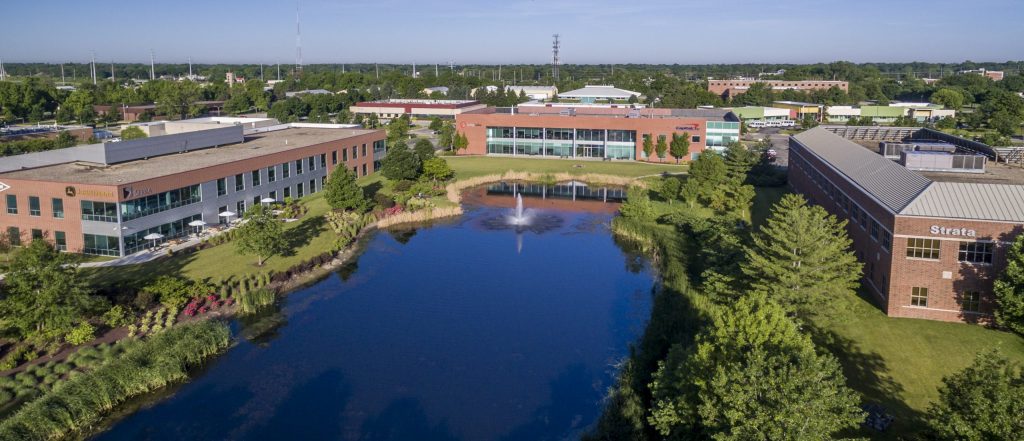
The Biomedical Research Academy introduces the experimental basis of cellular, molecular, and genetic aspects of biology, focusing on relevance to diseases. Fusing daily lectures, faculty research talks, laboratory experiments, and small group investigations into current research topics, students gain insight into the core of biomedical research.
- Apply to: The University of Pennsylvania
- Age Eligibility: Freshman (9th), Sophomores (10th), and Juniors (11th)
- Location: Philadelphia, Pennsylvania
11. Chemistry Research Academy
Penn Chemistry is a leading center for molecular research and instruction, whose researchers are at the frontier of modern chemistry, tackling a wide variety of important societal challenges. The Chemistry Research Academy provides students with the foundational knowledge to understand this cutting-edge research, while providing opportunities to hear and learn directly from several of the research professors and students.
- Age Eligibility: Sophomores (10th) and Juniors (11th)
12. Experimental Physics Research Academy
The Experimental Physics Research Academy focuses on current physics, specifically mechanics, electromagnetism, quantum dynamics, and astrophysics. Through lectures, activities, projects, and discussions with their instructors, students move past memorized equations to gain an understanding of cause and effect, and ultimately an appreciation of physics on a higher level.
13. Neuroscience Research Academy
The Neuroscience Research Academy explores the biological foundations of the brain, progressing from the cellular foundations of the neuron to an understanding of the sensory systems, and culminating with higher-order cognitive functions such as memory, emotion, and morality. Taught by members of Penn’s Biological Basis of Behavior program, the Neuroscience Academy introduces students to this cutting-edge field in both research and medicine, which has provided important insights into understanding the mind in both health and disease.
- Age Eligibility: Freshman (9th), Sophomores (10th)s and Juniors (11th)
14. Social Justice Research Academy
The Social Justice Research Academy brings students from around the world together for three weeks to dive deep into the past, present, and future of social justice. Designed to encourage discussion and critical thinking about the political, historical, and cultural context of inequality and resistance, the program welcomes students with a variety of academic interests across the social sciences, humanities, and arts. Topics vary from year to year but include a selection of significant historical struggles as well as those that define our recent past and present.

The University of Cincinnati College of Medicine has created a summer workshop for those who are at least 16 years old, interested in careers in medicine, or other healthcare related fields, and wish to gain some experience in medical research in a state-of-the art laboratory. Students will learn to formulate hypotheses, design experiments, analyze data and communicate their conclusions at a research symposium at the end of the course.
- Apply to : University of Cincinnati College of Medicine
- Location: Cincinnati, Ohio
In addition to lab work, you’ll have classroom instruction on cancer basics, seminars with invited speakers, and professional development opportunities. At the end of the summer, you’ll give a poster presentation at a research conference just like our graduate students and post-doctoral scholars do.
- Apply to: Roswell Park Comprehensive Cancer Center
- Location: Buffalo, New York
SSRP Scholars will participate on a research team designed and guided by Rockefeller trainees. SSRP teams mirror the structure of a Rockefeller laboratory, where one trainee serves as team lead with support from dedicated scientist-mentors. Each team will have their own space in the RockEDU laboratory.
- Apply to: The Rockefeller University
- Location: New York City, New York
This is an eight-week program in which high school students with a broad range of experiences, interests and backgrounds are invited to perform basic research with Stanford faculty, postdoctoral fellows, students and researchers on a medically-oriented project. The goals of the program include increasing interest in biological sciences and medicine in high school students and helping students to understand how scientific research is performed.
- Apply to: Stanford University
- Age Eligibility: Juniors (11th) or Seniors (12th)
- Location: Palo Alto, California
GRIPS is a twenty hour, eight week long research intensive experience for high school students. Program participants will be placed in a research laboratory for the summer and conduct genomics research under the supervision of a lab mentor.
- Location: Palo Alto, California (with hybrid meetings)
This summer program provides one-on-one mentorship with health care providers and researchers, along with access to unique workshops, seminars, training, simulations, and networking opportunities. The program culminates in a formal research symposium in which each student presents their project findings to the scientific community, many of which continue on as future grants, publications, and advances in healthcare.
- Apply to: University of California, San Francisco
- Age Eligibility: Juniors (11th) and Seniors (12th)
- Location: San Francisco, California
The EPCR summer program provides mentored, high-quality, cancer-focused research experiences for graduating high school seniors and undergraduate students. Participants will develop skills to think analytically and critically; design, perform and troubleshoot experiments; interpret research data; formulate new ideas; and propose meaningful strategies for testing those ideas through experiments with guidance from mentors.
- Apply to: Indiana University
- Age Eligibility: Seniors (12th)
- Location: Bloomington, Indiana
The Future Scientist Program at IU Simon Comprehensive Cancer Center is a summer science program for high school juniors at Indianapolis and all Marion County public schools, providing the opportunity to spend eight weeks on a research project under the mentorship of a university researcher.
The Division of Pulmonary and Critical Care’s Kimberly Querrey Summer Research Program offers a six- to eight-week paid, competitive research experience at Northwestern University for rising high school seniors and undergraduate college/university students interested in the biological sciences. Our program combines intensive research training with support for students’ academic and professional development.
- Apply to: Northwestern School of Medicine
- Location: Evanston, Illinois
This is a five-week summer program that provides students with a research experience in one of the basic science or clinical laboratories.
- Apply to : University of Connecticut Health
- Location: Storrs campus in Connecticut
This is a paid opportunity for high school and college students to work alongside world-renowned scientists and researchers and gain insights into careers in science or related areas. Through our four-week Summer Experience program, we offer a limited number of students an exclusive opportunity to be a part of the day-to-day research activities in dynamic research and biobanking environments, and we offer the possibility to experience biobank operations.
- Apply to: Coriell Institute for Medical Research
- Location: New Jersey
This four-week intensive training program is designed to expose students to a broad range of molecular, microbiological, and cell biological techniques currently used in research laboratories. Students are immersed in the research experience, giving them a taste of ‘life at the bench.’
- Apply to: T he University of Chicago
- Location: Chicago, Illinois
Our program provides students with the opportunity to participate in basic, translational, or clinical scientific research with the goal of stimulating interest in biomedical research as a potential career. During the 6-week, 240-hour program (holidays included) each student will have the opportunity to work on their own research project under the guidance of an investigator and their staff at MWRI or Magee-Womens Hospital.
- Apply to: Magee Womens Research Institute
- Location: Southwest Pennsylvania region

Students are selected from a pool of applicants for a five-week full-time summer research experience. Applicants must demonstrate academic excellence and be recommended by their high school science teacher and/or science chair. Students are assigned to Einstein research labs and will join the lab team under the guidance of the laboratory director (or principal investigator) who will serve as a mentor.
- Apply to: Albert Einstein College of Medicine
Our online workshops include Introduction to Cellular and Molecular Medicine, Medicinal Chemistry and Medical Bioinformatics. Intro to Cellular and Molecular Medicine is our entry-level workshop that is only two hours/day. Students in the Medicinal Chemistry and Medical Bioinformatics workshops learn how to use online tools to analyze biochemical data. For students interested in doing research or working on a project for a science fair, this is a great way to get started.
- Apply to: Rosetta Institute of Biomedical Research
This is a two-part program designed to provide students with an opportunity to develop the essential skills to be strong scientific thinkers by engaging in authentic enquiry based research activities. The first component of the program is a high school credit scientific investigative course (DNA Detectives) offered during the spring semester, and the second component is a six week college credit course (BIO189, 1 credit) that meets during the summer, in which students work in research labs under the supervision and mentorship of Lehman College faculty and their graduate students. Students are selected to participate in the summer mentorship based upon successful completion of the spring semester DNA Detectives course, and meeting additional eligibility criteria.
- Apply to : Lehman College
The UC San Diego Department of Bioengineering and UC San Diego Extended Studies are pleased to offer courses to high school students who are excelling in scholarship and would like to explore Bioengineering. The course offerings are based on fun, experiential, remote, at-home, hands-on lab activities.
- Apply to: The University of California, San Diego
- Age Eligibility: Sophomores (10th), Juniors (11th), or Seniors (12th)
- Location: San Diego, California (or hybrid meetings)
In partnership with Boz Institute, we will offer a unique science research learning experience. Our programs will involve field work, fundamental molecular biology topics, modern laboratory techniques, and relevant bioinformatics and statistical applications. Learn to synthesize life science fundamentals, review literature, formulate hypotheses and design experiments, collect and process samples, execute experiments, analyze data, and showcase your work through poster presentations attended by local scientists and industry leaders.
The following programs are designed to empower high school students to share learning, network with peers, and become environmental advocates. The goal of this program is to develop problem solving, organization, creative thinking, communication, collaboration, and leadership skills that will support future career goals and aspirations.
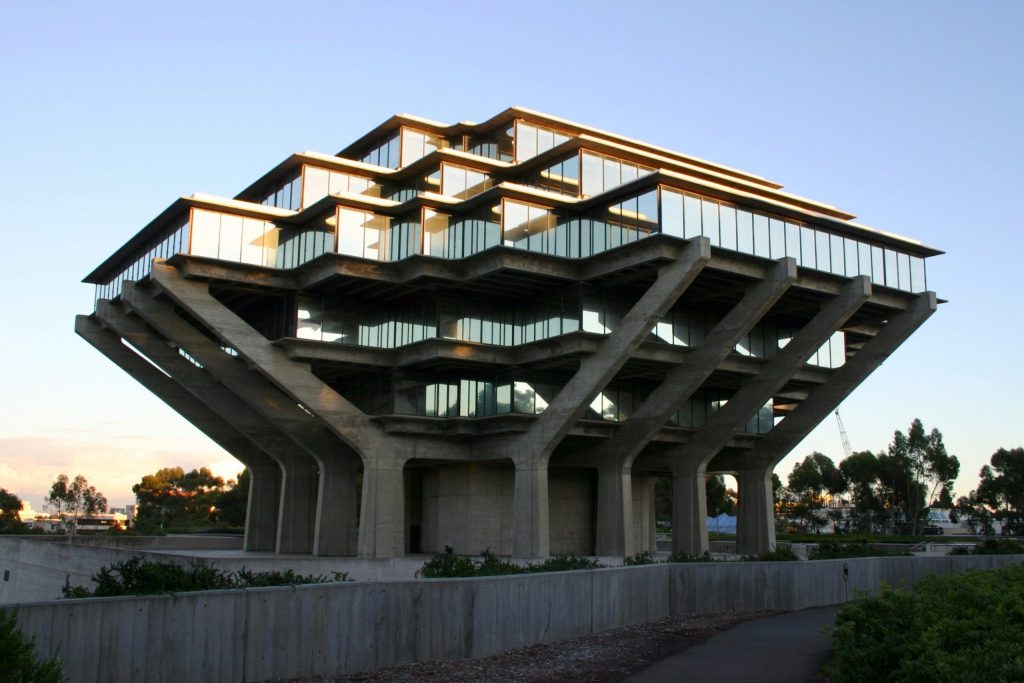
The following programs are designed with faculty from UC San Diego School of Medicine and are designed for high school students who wish to go into fields of medicine.
The following course is designed to prepare students for careers and advanced education in business innovation, entrepreneurship, and management with a solid grounding in fundamentals. While learning about topics of business innovation, design, venture financing, and growth strategy, students will gain the knowledge necessary to build an innovative business proposal and gain economic acumen.
- Location: Virtual Meetings
For eight weeks in the summer, student interns usually work with the mentors in laboratories or clinics. Interns learn techniques used in the health sciences laboratories, gain research study skills, and experience professional development and career preparation through weekly program seminars. Additionally, they receive training in presentation skills, including how to prepare a presentation for a scientific meeting. At program end, all interns present their research findings at a poster session or oral symposium.
- Apply to: Louisiana State University
- Location: New Orleans, Louisiana
High school students are embedded in a biomedical research laboratory for six weeks as a member of a team of researchers (chemists, biologists, physicians, mathematicians, engineers) working on diabetes, cancer and regenerative biology projects. Students conduct their own research and gather results that contribute to the data and goals of the larger research team. At the conclusion of the experience, students present their research to peers and mentors through both oral and poster presentations.
- Apply to: Vanderbilt University
- Location: Nashville, Tennessee
NRL seeks volunteers that are currently enrolled in high school or college and possess an interest in science and engineering. Volunteer service is limited to services performed by a student as part of an agency program established for the purpose of providing educational experience for the student. The work is done strictly on an uncompensated basis.
- Apply to: US Naval Research Laboratory
- Location: Based in Washington, D.C.
The selected interns gain valuable hands-on experiences working with full-time AFRL scientists and engineers on cutting-edge research and technology and are able to contribute to unique, research-based projects.
- Apply to: The Air Force Research Laboratory (AFRL)
- Location: Several locations across the United States
Our student-driven research programs teach the process of science through the creation of a field research project. By studying locations near your school campus, students strengthen their connection to the ecosystems in your community. In addition to delivering increased academic confidence, better social skills, and building science and language skills, all of our programs are designed in a fun and engaging way.
- Apply to: Headwaters Science Institute
- Location: Multiple locations in California

There you have it, folks. That’s our roundup of incredible research opportunities for high school students in 2024. Nonetheless, if none of these options strike your fancy, there are more out there. Check out this article for more tips on STEM academic programs for high schoolers. You can also consider a more customized program like Empowerly’s Research Scholar Program . No matter your academic interest area, there’s a project out there for your student!
When it comes to your education, there’s no need to compromise. Work with the experts to ensure you’re on the right track for academic success.
Share this article:
College apps can be overwhelming, but you don’t have to do it alone. empowerly college counseling is in it with you., related articles.

40 Internships for High School Students

Which Research Programs Are Good for College Applications?
How To Choose a Research Study for a College Application
Summer Online Research Program
- Education > Summer Programs > Summer Online Research Program
Explore Your Intellectual Passions Before College
The Online Research Program at UCI School of Medicine is a three-week mentored program designed to increase the exposure of high school students to research methods. The instructor is a member of the UCI School of Medicine faculty with coaches selected from UCI undergraduates or postgraduates majoring in areas related to biomedical research.
All the activities will be held online, and the schedule is flexible to allow students work on assignments at their own pace. The students will get instruction via email, zoom meetings and/or podcast on how to complete the projects. At the completion of the program the students will be able to:
- Understand the core concepts for responsible conduct of research involving human subjects
- Understand the importance of evidence-based medicine
- Learn how to critically evaluate the medical literature on a given topic
- Write an organized research report
- Submit an abstract to a national meeting where, if accepted, the student’s name will be listed as a co-author
- Network with undergraduate and postgraduate coaches and get advice about college
Program Dates
Session one: june 24–july 12, 2024, session two: july 15–august 2, 2024, program details.
The Summer Online Research Program is open to high school students who:
- Are 15 to 18 years of age
- Have a minimum unweighted GPA of 3.3 out of 4
- Are interested in research in the healthcare field
Please note that due to the high demand and interest in our program, applications will be reviewed on a rolling basis to ensure a fair process. Our program typically closes to new applications by the end of January or the beginning of February. Qualified applicants who have submitted all of the necessary documents will be accepted on a first-come basis until we reach capacity. Priority will be given to those attending higher grades in high school.
Application Requirements:
- We are in the process of reviewing the applications that have been submitted and are not accepting new applications at this time.
- A copy of your transcripts (they can be unofficial, please send them to [email protected] )
A signed application confirmation will be sent to you via email after you submit your online application.
The tuition for each three-week session is $2275. A $50 discount is available for those who get accepted and registered before Feb 14, 2024.
The Summer Online Research Program is committed to serving high school students regardless of their ability to pay. The 2024 summer program is offering scholarships to qualified applicants from low-income families who attend a high school in underserved areas of Southern California. Tax forms will be required prior to acceptance.
Scholarships offered are limited, and the following criteria are used to determine scholarship eligibility:
- Quality of the scholarship essay : It is important that the student demonstrates how their diversity and/or experiences related to financial hardships has motivated them to make contributions to the society as a healthcare provider or researcher.
- Come from a family with low income . We use a percentage of the Federal Poverty Level as the income criteria for program participation.
Applicants must also indicate whether they want to be considered for the summer program if a scholarship is not awarded.
To apply for a scholarship, please complete and return the following items:
- Scholarship application form
- You must complete the regular application in addition to the scholarship application
- High school transcripts (either official or unofficial) - must have a minimum unweighted GPA of 3.3 out of 4
- 2022 or 2023 tax information
Please send questions to [email protected] .
The UCI School of Medicine Summer Online Research Program provides mentoring opportunities for UCI undergraduate, postgraduate and medical students who are interested in health and research careers. The program is designed to offer unique opportunities for college students to mentor high school students under the supervision of a School of Medicine faculty mentor on a research project. The coaches will work with Dr. Behnoosh Afghani to choose one of the topics related to their interests and to learn about evidence-based medicine and literature review. Coaches will receive a stipend.
Depending on the availability of conferences during the COVID-19 pandemic, the findings of the research will be submitted as an abstract to a national meeting. If the abstract is accepted, the coach will present the abstract at the national meeting.
Session One:
June 24–July 12, 2024
Session Two:
July 15–August 2, 2024
Requirements
We will only accept four to five coaches for each session.
- Preference is given to undergraduate or postgraduate students at UCI in a biomedical-relevant major, including medical students.
- Coaches must have completed at least two years of college with a GPA of >3.3 and must have some research experience.
How to Apply
- We are not accepting new applications at this time.
Contact us at [email protected] or contact the program director, Dr. Behnoosh Afghani, clinical professor of pediatrics, at [email protected] .
What are your chances of acceptance?
Calculate for all schools, your chance of acceptance.
Your chancing factors
Extracurriculars.
20 Free Summer Programs for High Schoolers in 2023
What’s covered:.
- 20 Free Summer Programs for High Schoolers
- How Impressive Are Summer Programs in High School Admissions?
Other Ways to Spend Your Summer
Looking for a productive, engaging way to spend your summer? Summer programs are a great option. These enriching experiences cover a variety of themes and topics, allowing you to take college-level courses, pursue a passion, or explore a prospective career.
Sometimes, summer programs are pricey, but we’ve rounded up 20 summer programs that are entirely free.
20 Free Summer Programs for High Schoolers
1. computer science for cyber security (cs4cs) .
Dates: July 10-28
Location: New York University (NYU)
Application deadline: April 14
Cybersecurity is one of the most important (and lucrative) fields in our modern world. Through this program, high school students learn the fundamentals of cybersecurity and computer science at NYU’s Tandon School of Engineering. The mission is to “[break] down barriers that have historically led to the underrepresentation of women and minorities in STEM.”
Students who live in New York City or a neighboring city, are highly motivated in STEM, and in 9th-12th grade as of September 2023 are invited to participate.
2. Sadie Nash Summer Institute
Dates: July 5th-August 15th
Location: Manhattan, Brooklyn, Queens, and Newark
Application deadline: N/A
Through this program, self-identified young women and gender-expansive youth currently attending high school, living in New York or Newark, NJ, explore their leadership potential while participating in a community with other “Nashers.”
Students take courses in society, identity, social justice, and other courses to build critical thinking skills. They also attend workshops and field trips, while meeting accomplished leaders.
3. Annenberg Youth Academy (AYA) for Media and Civic Engagement
Dates: June 19-July 14
Location: University of Southern California (USC)
Application deadline: March 31
This four-week academy gives high school students a taste of college through freshman-level courses in media and journalism. 26 students are selected from areas surrounding the University of Southern California (USC) to participate in the program.
During AYA, students will hone their skills in public speech, debate, critical thinking, writing, multimedia production, interviewing, and more, as well as explore careers in media and journalism. Students also have the opportunity to learn about USC and meet the school’s scholars who are advancing issues of race, gender, and ethnicity in communication and journalism.
4. Girls Who Code Summer Immersion Program
Dates: Late June-early August
Location: Virtual
Application deadline: February 1
Open to rising sophomores, juniors, and seniors, the Girls Who Code Summer Immersion Program teaches girls and nonbinary students computer science skills necessary to prepare for a career in tech. Participants will also learn about tech jobs and meet professionals in the field. No prior computer science experience is required.
The program is offered on two tracks: the two-week virtual summer immersion program (SIP) and the self-paced program (SPP). As its name implies, participants have two weeks to complete the SIP program, a commitment of approximately five hours a day, while SPP participants have six weeks to complete course projects.
5. Summer Academy for Math and Science (SAMS)
Dates: July 1-August 5
Location: Carnegie Mellon University
Application deadline: March 15
SAMS is an opportunity for students from underrepresented communities in the U.S. to learn about STEM fields, including math, biology, and physics. Students take courses, engage in projects, and receive mentorship from world-renowned faculty at Carnegie Mellon University .
Part 1 of the program provides participants a virtual jumpstart by helping them build the skills needed for success in the in-person program. Part 2 is the in-person, residential part of the program. During Part 2, students take courses, attend meetings, and complete and present their projects at the SAMS Symposium.
6. Research Science Institute (RSI)
Dates: Six weeks during the summer
Location: Massachusetts Institute of Technology (MIT)
The prestigious RSI takes place at the Massachusetts Institute of Technology (MIT) every year—just 100 high school juniors are selected to participate annually. Through the program, students learn theory in the classroom while gaining hands-on experience in science and technology research.
Participants experience the entire research cycle from start to finish, they review current literature in their field, create a research plan, and present their findings through written and oral reports, all under the guidance of widely respected professors.
7. USC Bovard Scholars
Dates: July 10-29
Application deadline: January 13
Bovard Scholars live on the USC campus, getting a taste of college life while learning in a rigorous curriculum. They also receive hands-on support and mentorship from a coach who will guide them through the college admissions process, assisting them with their applications and essays. Following the program, their admissions coach will continue to work with them through the admissions process and offer assistance.
Scholars will take part in career self-assessments and small group activities. Additionally, they’ll attend lectures, hear from special guest speakers, and participate in a variety of social activities.
8. National Youth Science Camp (NYSCamp)
Dates: June 19-July 12
Location: Camp Pocahontas, West Virginia
Application deadline: February 28
NYSCamp is a residential science, technology, engineering, arts, and mathematics (STEAM) program in West Virginia’s Monongahela National with the aim of educating and bolstering rising leaders. Two delegates are selected from each state and the District of Columbia, and international delegates are sometimes chosen to participate as well.
The program features world-class lectures, directed studies, and seminars with STEM professionals who impact their fields and the world. Past presenters have included Neil deGrasse Tyson, John Nash, Neil Armstrong, and Julie Robinson.
9. Pomona College Academy for Youth Success (PAYS)
Dates: June 25-July 21
Location: Pomona College
Application deadline: February 27
More than 90 students local to Pomona College are selected to take part in PAYS. Rising sophomores through rising seniors from underrepresented racial or ethnic groups prepare for admission to highly selective colleges and universities through this program. Students take Math & Critical Inquiry courses taught by Pomona faculty and electives taught by Pomona College students serving as TAs. Students also participate in cultural events, workshops, and projects.
10. Princeton Summer Journalism Program (PSJP)
Dates: June 27-August 4
Location: Princeton University
Students interested in journalism should consider PSJP. The hybrid program includes combines virtual workshops and lectures with a ten-day residential experience. Lectures and workshops are taught by program alumni and journalists from The New York Times , The Washington Post , The New Yorker , New York Magazine , The Daily Beast , Politico , Sports Illustrated , and CNN, among other media outlets.
Students also participate in weekly discussion groups covering a variety of topics and attend seminars about the college admissions process. PSJP culminates with the publication of the Princeton Summer Journal , a newspaper created by program participants.
11. Telluride Association Summer Program (TASP)
Dates: June 25-August 5
Location: Cornell University, University of Maryland, and University of Michigan
TASP is a prestigious, six-week program that brings together talented high school sophomores and juniors from around the world to participate in seminars, engage in educational and social activities, join group discussions, attend lectures, go on field trips, and more. Students also have the chance to plan activities for their time outside of the classroom.
12. Anson L. Clark Scholars Program
Dates: June 18-August 3
Location: Texas Tech University
Application deadline: February 13
This intensive seven-week summer research program is extremely competitive—just 12 talented high school juniors and seniors are selected to participate annually. Students lucky enough to participate in this program gain hands-on research experience working with a faculty member in fields including:
- Cell and Molecular Biology
- Chemistry & Biochemistry
- Computer Science
- Economics/Business/Finance/Marketing
- Electrical Engineering & Computer Engineering
- Microbiology
Students also participate in social activities and seminars throughout the program. Not only is this summer program free, but participants receive a $750 tax-free stipend at its conclusion.
13. Applied Research Innovations in Science and Engineering (ARISE)
Application deadline: March 1
This seven-week program is aimed at rising sophomores and juniors in New York City who are interested in STEM. The program provides hands-on opportunities in a variety of STEM fields—including Bio and Molecular Engineering, Chemical Engineering, Robotics, AI, Computer Science, and Machine Learning—while also covering valuable topics like college-level research, expository writing, scientific methods, professional development, and ethics.
14. Massachusetts Institute of Technology Women’s Technology Program (WTP)
Dates: June 24-July 21
Location: Massachusetts Institute of Technology (MIT)
Application deadline: January 15
This four-week summer program introduces female rising juniors to engineering through hands-on classes, labs, and team-based projects. Participants aren’t required to have a background in engineering, however, they must demonstrate excellence in math and science. This program intends to empower students from traditionally underrepresented and underserved in engineering—such as those who are African American, Hispanic, or Native American. The program is free, but participants must provide their own housing and transportation, making it ideal for local students.
15. Simons Summer Research Program
Dates: June 26-August 11
Location: Stony Brook University
Application deadline: February 10
The Simons Summer Research Program provides motivated local rising juniors with the chance to gain hands-on experience with research in science, math, and engineering at Stony Brook University . Participants are paired with a faculty mentor, join a research team, and assume responsibility for a project, ultimately producing a written research abstract and poster while experiencing what it’s like living and studying at a major university.
16. Santa Clara University Summer Engineering Seminar (SES)
- Session One: July 9-13
- Session Two: July 16-20
- Session Three: July 23-27 (past participants only)
Location: Santa Clara University
Application deadline: February 26
This five-day summer experience is offered to high school sophomores with an interest in engineering. Through a mixture of lectures and interactive activities, participants learn about engineering while sampling college life. Participants can apply to attend an advanced session the year after their attendance and turn SES into a two-year program to gain a deeper understanding of the engineering fields they’re most interested in.
17. Penn State Business Opportunities Summer Session (BOSS)
Dates: June 18-June 30
Location: Penn State University
BOSS is a free two-week program for students interested in pursuing business in college. Over the course of the program, participants take part in college prep activities and coursework focused on business fundamentals. All program expenses are free—like food, lodging, and events—however, accepted students must pay a $50 registration fee.
18. Lumiere Breakthrough Scholar Program
Dates: 12 weeks
Location: N/A
Application deadline:
- Spring: February 12
- Summer: April 16
- Fall: May 14
This 12-week program pairs talented high school students with Ph.D. mentors to work 1-on-1 on an independent research project. Participants gain firsthand experience in their field and develop an independent research paper by the end of the program. Students also work with writing coaches and take part in workshops on the research process to further build their skills.
19. Office of Naval Research Science and Engineering Apprentice Program
Dates: Eight weeks
Location: One of 25 Navy laboratories
High schoolers with a talent for science, technology, engineering, and mathematics serve as apprentices in one of 25 Navy laboratories for eight weeks through this program. Participants are mentored by research personnel and gain real-world science and engineering research experience. Not only is this program free, but participants are paid. First-year apprentices earn a $3,500 stipend while returning apprentices earn a $4,000 stipend.
Dates: Six days
Location: Washington, D.C.
Application deadline: March 17
JCamp is a six-day multicultural journalism program for high school freshmen, sophomores, and juniors provided by the Asian American Journalist Association. The program offers hands-on training in a variety of journalistic mediums, including broadcasting, newspapers, magazines, photojournalism, and online media. JCamp seeks to build diversity in journalism and students from all backgrounds are welcome to apply.
How Impressive Are Summer Programs in College Admissions?
Colleges look for students who explore their interests outside the classroom. Extracurricular activities are an important way to demonstrate your passions.
Extracurricular activities are broken down into four tiers , with Tier 1 representing those that are the most impressive and unique and Tier 4 representing those that are the most common. In general, you should aim to have at least a few Tier 1 and 2 activities mixed in with Tier 3 and 4 activities.
Summer programs fall into different tiers depending on factors like selectivity, theme, and more. While they usually fall into Tier 3 or 4, a particularly prestigious and selective program, such as Telluride Association Summer Program (TASP), could be considered Tier 1 or 2.
Curious how a summer program or extracurricular activity will impact your chances of admission? CollegeVine’s free chancing engine will help you learn your real odds of getting into hundreds of schools across the country, plus give you tips for improving your profile.
Summer break isn’t really a break when you’re preparing for the college admissions process. You should be exploring interests and demonstrating that you’re eager to learn and explore a passion. But summer programs aren’t the only way to do that.
For example, you could take on an independent project, such as writing for your own blog or conducting research. This will look particularly impressive to colleges because it demonstrates initiative.
Internships are another good option. Although most internships are reserved for college students and graduates, you can still find some opportunities for younger people. This, too, will impress colleges, as well as give you a taste of a prospective future career.
Don’t forget about paying jobs. Colleges understand that students may need to earn money. They also know that jobs help students gain important life skills and learn a sense of responsibility.
Related CollegeVine Blog Posts

- Telemedicine
- Healthcare Professionals
- Go to MyChart
- Find a Doctor
- Make an Appointment
- Cancel an Appointment
- Find a Location
- Visit ED or Urgent Care
- Get Driving Directions
- Refill a Prescription
- Contact Children's
- Pay My Bill
- Estimate My Cost
- Apply for Financial Assistance
- Request My Medical Records
- Find Patient Education
- Refer and Manage a Patient
Research Training Program for High School Students

Applications Open January 8
Applications for the Summer 2024 Research Training Program open on Monday, January 8, and will close on Sunday, March 10, 11:59 p.m. Pacific time.
Submit an Application
About the 2024 Summer Program
Seattle Children’s Research Institute is committed to building an inclusive and diverse workforce, and inspiring the next generation of scientists, physicians and healthcare workers. During the summer, our Science Education Department offers high school students the opportunity to learn more about biomedical research.
For summer 2024, we are offering an in-person programs led by PhD-level scientists and educators. Students will learn how to work in a research laboratory environment and learn about topics including biochemistry, immunotherapy, gene editing, and infectious diseases. Students will also participate in workshops on college readiness and career exploration. These programs provide students with a solid foundation for a future career in biomedical research. There is no cost to participate.
The Research Training Program (RTP) is an in-person program with a competitive application process and is intended for local students who reside within commuting distance of downtown Seattle. Stipends are available to offset costs for transportation and meals. The program does not provide or arrange housing for students.
The Research Training Program is for students from backgrounds that are historically underrepresented in the biomedical and health sciences as defined by the National Institutes of Health . Students from these groups are highly encouraged to apply:
- Blacks or African Americans
- Hispanics or Latinx
- American Indians, Alaska Natives, or Indigenous
- Native Hawaiians or other Pacific Islanders
- Individual with disabilities, who are defined as those with a physical or mental impairment that substantially limits one or more major life activities, as described in the Americans with Disabilities Act of 1990, as amended .
- Individuals who meet two or more of the criteria for disadvantaged backgrounds as defined by the National Institutes of Health .
We are not offering the Virtual Research Training Program in 2024.
Program Information
The 2024 Research Training Program is a fully in-person experience in a laboratory classroom. There are no hybrid or virtual options. The wearing of isolation or higher-level masks is highly recommended.
Application Timeline
- Monday, January 8, 2024 : Applications for the Summer 2024 Research Training Program open.
- Sunday, March 10, 2024, at 11:59 p.m. Pacific time : Applications are due. Students must submit an application form before this due date. Late applications will not be considered.
- Sunday, March 31, 2024, at 11:59 p.m. Pacific time : Letters of Recommendation are due. Letter writers must submit their letters before this due date. It is highly recommended that students give their letter writers at least three weeks’ notice before this due date.
- April : Applications are reviewed.
- Early May : Applicants will be notified of their status: accepted, waitlisted, or not selected.
- Wednesday, May 22, 2024, 4–5:30 p.m. : There is a mandatory in-person Orientation Session at Seattle Children’s Research Institute in downtown Seattle. Students will submit required paperwork at this orientation.
- The Research Training Program will take place over four weeks from Monday, July 8 to Friday, August 2, 2024, from 8:30 a.m.–4 p.m. daily.
- Lectures on biochemistry, immunology, global and public health, and infectious diseases
- Labs on microscopy, agarose gel electrophoresis, immunoassays, isolating white blood cells, polymerase chain reaction, bacterial transformation, gene editing, and more.
- College and career workshops
- Facility tours
- Group research project and presentation
Eligibility
The Research Training Program is open to current 10th grade (rising junior), 11th grade (rising senior), or 12th grade (graduating senior) high school students who have not yet applied to college.
Students must have a strong interest in one of the following fields: biology, biochemistry, microbiology, public health, or a related scientific field. Prior knowledge of these fields is not required.
Students must be able to reside within commuting distance of downtown Seattle for the duration of the program. The program does not provide or arrange housing for students. Prior formal research experience is not required. Program applicants seeking their first research experience will be prioritized over applicants who have completed other research programs and/or internships to optimize the program’s impact.
Students will receive a stipend, which is considered reportable income by the Internal Revenue Service. Therefore, students must have a SSN to participate in the RTP.
Frequently Asked Questions
- We are not offering the online Virtual Research Training Program (VRTP) in 2024.
- The Research Training Program is for students from backgrounds that are historically underrepresented in the biomedical and health sciences as defined by the National Institutes of Health .
- While we prioritize students from these backgrounds, we consider many factors when reviewing applications.
- If you have experienced other factors that are not listed in the eligibility criteria, you can explain in your application essay.
- The RTP is not a medical program. The RTP is best suited for students interested in laboratory research at Seattle Children’s Research Institute.
- Students will not be working at Seattle Children’s Hospital, and we will not be working with patients. Also, we will not be covering medical school in great detail. If you are interested in volunteer or clinical positions at Seattle Children's Hospital, please visit High School and Youth Service Projects , Summer Nurse Camp or Summer Scrubs & ’Scopes Camp .
- Preparation for the college application process is a major component of the RTP. Students in Running Start or who are enrolled in college courses while still in high school are eligible to apply for the RTP, as long as they have not yet applied to college.
- Participants of the RTP will receive a stipend, which is considered reportable income by the Internal Revenue Service. Therefore, students must have a SSN to participate in the RTP.
- Participants are highly encouraged to properly wear isolation or higher-level masks that cover the nose and mouth.
- This is a competitive program, and we receive and carefully review many more applications than we have capacity for. The lab has a capacity of 24 students.
How to Participate
Step 1. ask your letter writer.
Contact your letter writer as soon as possible to request a letter of recommendation.
Please select someone to write a letter of recommendation for you. This individual should be someone who will speak well of your academic or professional accomplishments, such as a teacher, advisor, or employer. We highly recommend that you ask them at least three weeks in advance.
When you submit your application form (see Step 2 below), an email will be sent automatically to your letter writer with instructions on how to submit the letter of recommendation.
Step 2. Application Form
The application form is due on Sunday, March 10, 2024, at 11:59 p.m. Pacific time.
Please respond to the following essay prompts. Our expectation is that your application materials will be your own original composition.
- Tell us about yourself. Describe how you see your role in enhancing diversity, equity, and inclusion in science. (Maximum of 3,000 characters with spaces or ~500 words)
- Why are you interested in this laboratory research program? (Maximum of 1,200 characters with spaces or ~200 words)
- Describe any previous work or volunteer experience and skills you gained that are applicable to this program. (Note: A lack of research experience will not exclude you from this program.) (Maximum of 1,200 characters with spaces or ~200 words)
- What major do you intend to pursue in college? If you are undecided, what area of study do you intend to pursue in college? (Maximum of 1,200 characters with spaces or ~200 words)
- Explain how participating in this training program that focuses on laboratory research and biomedical science will help you achieve your college goals? (Maximum of 1,200 characters with spaces or ~200 words)
Step 3. Letter of Recommendation
When you submit your application form, an email will be sent automatically to your letter writer with instructions on how to submit the letter of recommendation. The letter of recommendation is due on Sunday, March 31, 2024, at 11:59 p.m. Pacific time.
The application form and letter of recommendation do not need to be received at the same time.
If there are any questions or concerns, please email the Science Education Department .
Thank you for your interest in the Research Training Program at Seattle Children’s Research Institute!
This page was last updated on December 18, 2023.
Also in This Section…
- Science Adventure Lab
- Science Discovery Lab
- Biomedical Research and Global Health
- Award Program
- Summer Scholars Program
- Research Training Program
Upcoming Events
- Thu 18 Pediatric Nursing Bioethics Conference: Nursing Ethics: Today’s Realities and Tomorrow’s Challenges
- Fri 19 Pediatric Bioethics Conference: Thinking Big, Responding Ethically: Big Data and AI in Pediatrics
Looking for a Researcher?
- Name: First Name Last Name
- Research Areas of Focus: (All) ADHD Adolescent Health Aggressive Treatment of Juvenile Idiopathic Arthritis Allergy Allogeneic hematopoietic stem cell transplantation Analytics Anatomy Angiogenesis Arousal neurobiology, neuromodulation, anesthesiology, integrative physiology Autism Spectrum Disorders Autoimmune Diseases Autoimmune Disorders Autoimmunity Behavioral / Mental Health Big Data Biobehavioral Pediatric Oncology Biochemical Genetics Biochemistry Bioethics Bioethics, research ethics, pediatric ethics, ethics and genetics, ethics and disabilities Biomaterials Biomedical Research Biotechnology Blood Disorders Bloodless Cardiac Surgery BMT Hospital Medicine Brain Injury Cancer Cancer biology, Immunotherapy, CAR-T cells, cell-free DNA, liquid biopsy, CSF biomarkers cardiac exercise therapeutics Cardiac Hypertrophy Cardiac Metabolism Cardiac MRI Cardiology Care for infants with Heterotaxy Syndrome requiring complex cardiac surgeries Cell Biology Cell Death Chagas Disease Chemistry Chronic Conditions / Special Health Care Needs Clinical Clinical Electrophysiology Computational Biology Congenital Cardiac Surgery Outcomes Congenital Heart Defects Continuous process improvement (CPI) and quality Coronary Development Craniofacial Cystic Fibrosis Data Analysis Data and Information Governance, Analysis, and Integration Developmental Biology Developmental Cognitive Neuroscience Diabetes Diagnostics DIPG, DMG, ATRT, CAR T cell therapy, epigenetics, early phase clinical trials Drug Delivery Drug Resistance duchenne muscular dystrophy Early phase trials for CNS Tumors, survivorship and morbidity reduction, medical education Ebola Emergency Medicine Endocrinology / Metabolism Environmental Exposures and Childhood Health Outcomes Epidemiology Epilepsy Exercise Medicine Fetal echocardiography Financial Toxicity Gender Dysphoria Genetic Cardiovascular Disease Genetic Engineering Genetics Genetics and Developmental Biology Genomics Geographic Disparities Germ Cell Tumors Global Health Global Surgery Health Promotion and Disease Prevention Health Services Research Healthcare outcomes Hematopathology High-risk leukemias HIV/AIDS Host-Pathogen Interaction Host: Pathogen Interaction Imaging of Craniofacial Disorders Imaging Science Immunizations Immunocompromised Hosts Immunology Improvement in regional fetal and neonatal cardiac care Improving diagnostic accuracy and reliability of prenatal cardiac imaging Infectious Disease Influenza (Flu) Informatics Innate Immunology Innovation in medical education in the field of pediatric cardiology Intestinal failure Kawasaki Disease Laboratory Medicine Leishmaniasis Liver tumors Lymphoma Malaria Malnutrition Marfan syndrome Medical Education Metabolic Syndrome Mitochondrial disease Mixed methods research Molecular Biology Multimodality Imaging Muscular Dystrophy Nanotechnology Neuroblastoma Neuroethics Neuroimaging Neuroscience / Neurodevelopment Neurovascular Development Non-invasive imaging Novel Therapeutics Nutrition and feeding advancement in infants recovering from complex cardiac surgeries Obesity OMICS Pediatric Hematology / Oncology Pharmacology population health Prader-Willi Syndrome Predictive Analytics Prenatal diagnosis and treatment procedural echocardiography (echo-guided procedures and 3D imaging) Proteomics Pulmonary Pulmonary Hypertension Quality Improvement Refractory and recurrent cancer, Sarcomas, Thyroid Cancer Research Liver Regeneration Retinoblastoma Science Education Outreach Sickle Cell Disease Solid Organ Transplantation Somatic Mosaicism Stem Cell Biology Stem Cell Transplantation Structural Genomics Surgical Equity Survivorship and morbidity reduction Systems Biology T cell immunotherapy Therapeutic Trials Tissue Engineering Tissue Response to Injury Translational Research Translational research, observational studies, investigator-initiated interventional studies Tropical Medicine Trypanosomiasis Tuberculosis Using novel biological medications for acute phase treatments of children with Kawasaki disease and coronary artery changes Utility of fetal imaging to better predict postnatal outcomes in pediatric cardiovascular disease Vaccines vascular anomalies Virology Zika Research Center: (All) Ben Towne Center for Childhood Cancer Research Center for Child Health, Behavior and Development Center for Clinical and Translational Research Center for Developmental Biology and Regenerative Medicine Center for Global Infectious Disease Research Center for Immunity and Immunotherapies Center for Pediatric Nursing Research Center for Respiratory Biology and Therapeutics Immunotherapy Integration Hub Norcliffe Foundation Center for Integrative Brain Research Office of Science-Industry Partnerships Seattle Children's Research Institute: Olive Lab Treuman Katz Center for Pediatric Bioethics and Palliative Care
Seattle Children’s complies with applicable federal and other civil rights laws and does not discriminate, exclude people or treat them differently based on race, color, religion (creed), sex, gender identity or expression, sexual orientation, national origin (ancestry), age, disability, or any other status protected by applicable federal, state or local law. Financial assistance for medically necessary services is based on family income and hospital resources and is provided to children under age 21 whose primary residence is in Washington, Alaska, Montana or Idaho.
QuestBridge supports high-achieving students from low-income backgrounds on their path to a top college. This is your chance to dream big.
We’re here to connect Scholars and Alumni to the people and opportunities you need to reach your full potential.
Our partnerships bridge the gap between the nation’s brightest minds and the opportunities they deserve.
Learn more about who we are and how we help students dream big on their path to, through, and beyond college.
College Prep Scholars Program
Get a head start to a top college as a high school junior with scholarships, awards, and resources designed to help you stand out in college admissions.

A head start to top colleges
Top colleges and universities are looking for students who have excelled academically despite financial hardship, and they partner with QuestBridge to find students like you . If you are a high-achieving high school junior from a low-income background, the College Prep Scholars Program can equip you with knowledge, confidence, and resources to connect with the nation's most sought-after colleges.
Eligibility:
- High school juniors, regardless of citizenship, currently attending high school in the U.S., and U.S. Citizens and Permanent Residents living abroad
- Earning primarily A’s in the most challenging courses offered
- Demonstrating strong writing skills and intellectual curiosity, plus resilience, integrity, and motivation to succeed
- Typically from a household earning less than $65,000 annually with minimal assets (for a household of four members)
Why apply as a junior?
College application head start.
Get a head start on applying for full four-year scholarships to over 50 college partners with an application that carries over to the National College Match your senior year.
College prep
Receive guidance and resources to develop a strong college application.
Exclusive access
Get access to summer program scholarships , college admissions conferences , writing workshops , and even a chance to visit top colleges for free!
Gain a supportive community of motivated peers who are also applying to top colleges.
By the numbers
College Prep Scholars are selected based on their academic achievement, financial circumstances, and personal qualities. They are competitive candidates for admission to college partners, and the awards and resources they receive further equip them to navigate the college application process.
High school juniors selected as College Prep Scholars in 2024
College Prep Scholars are nearly six times more likely than other applicants to receive full four-year scholarships through the National College Match.

Join our mailing list
Are you a current high school student interested in QuestBridge programs? Sign up to be notified when you become eligible to apply! If you are not a high school student, sign up for updates here .
Are you seeking one-on-one college counseling and/or essay support? Limited spots are now available. Click here to learn more.
12 Best Accredited Homeschool Programs – 2024
May 24, 2024
Online learning is an increasingly popular choice among students. Of course, there are benefits to this method of education. Students can enjoy a flexible schedule which means taking courses on their own time and not adhering to a school bell. Plus, some homeschooling programs even offer the same opportunities as public, on-ground high schools, like dual enrollment and AP courses. Accredited homeschool programs have played an instrumental role in making online education more accessible. Now, students can learn from a challenging and certified high school curriculum from the comfort of home. The best homeschool programs provide top-notch educational materials, student support, and rigorous academics for students at any grade level. Plus, accredited homeschool programs employ licensed teachers and offer highly-rated career and college prep guidance. That way, students don’t miss out on access to these valuable resources.
Maybe you’re considering switching from a public high school to an online institution and are weighing the benefits of homeschooling. If you are considering making the change to one of the best homeschool programs, then you’ll want to review your options before making a final decision.
Below we have assembled a list of accredited homeschool programs and defined where each school’s accreditation is from. While this list is ordered numerically, it is important to note that the list does not not intend to provide any kind of further ranking.
Additionally, it is also important to note that this is not a comprehensive list. There are other homeschooling programs available that offer wonderful curriculums.
So, now that we’re all on the same page, let’s get started!
Accredited Homeschool Programs
- Accreditation: Cognia
With a heavy emphasis on college preparation, K12 offers a program called Stride Career Perp for grades 9-12. In addition to taking core classes, students can also take elective and interest-specific courses to tailor their schedule to their future career goals. For example, students can take courses in the hospitality & tourism, IT, marketing, and criminal justice fields, among others.
Classes are online and synchronous, and students will attend regularly scheduled lessons with state-certified teachers. Plus, some teachers at K12 have advanced degrees and all are trained to teach online instruction.
Students also have access to a Learning Coach who will help support and guide students on their path to graduation. With the help of their college prep coaching, students will learn how to create a resume, set attainable goals, solidify their career direction, and more.
2) Connections Academy
Along with comprehensive lesson planning online and in print, Connections Academy provides lesson materials and a curriculum that meets state standards. To access these lessons, students can utilize the Pearson Online Classroom any time of day, including weekends and holidays, for maximum scheduling flexibility. Both teachers and Learning Coaches work with students to determine and customize a best-fit schedule based on their interests and goals.
Students will need to be able to attend teacher-led synchronous online sessions. However, the student has a lot of flexibility to determine the best use of their free time. This way, high school students can still make time for socializing, sports, and community involvement.
Plus, if students are interested in pursuing athletics at the collegiate level, they will be happy to know that Connections Academy offers NCAA -approved classes.
Best Online Accredited Homeschool Programs (Continued)
3) bridgeway academy.
- Accreditation: Cognia; NCAA Approved
Bridgeway Academy is a highly-flexible program where students can create their own schedule. For example, students can learn through traditional textbooks or online. When learning online, students take live classes with highly skilled and certified teachers.
Through this homeschooling program, students have access to 1:1 advising support through a personal advisor. Plus, if students want to get a head start on their college careers, they can enroll in the dual credit program to being able to work toward an Associate Degree . In this case, the dual credit program is also accredited through The Higher Learning Commission.
Additionally, students have access to Virtual Field Trips to help them connect to their peers. Every month, students “travel” to a new and exciting location together. Previous visits include the Pro Football Hall of Fame, the Denver Museum of Nature & Science, and more.
4) Acellus Academy
- Accreditation: Western Association of Schools & Colleges; College Board; NCAA Approved
With this online program, students have access to engaging video-based lessons, extra help videos, and personalized instruction. Plus, students have the opportunity to select between two graduation pathways: standard and honors. For the honors pathway, students must graduate with a 3.0 GPA and 26 credits. Students may enroll in the program at any time during the year.
In addition to core courses like sciences, mathematics, and language arts, students have the opportunity to select electives and even AP courses. For example, students can take AP courses in US History, biology, calculus, psychology, and more. Furthermore, students have options to take foreign language courses in Spanish, Portuguese, French, and German.
Plus, students can also take career & technical education courses. These courses include business management, electrical technology, plumbing technology, and accounting, among others.
5) The Keystone School
- Accreditation: Cognia; Middle States Association of Colleges and Schools’ Commissions on Elementary and Secondary Schools (MSA-CESS).
At the high school level, students who partake in this homeschooling program can enjoy flexible, online courses. If needed, students can also take print courses and receive all learning materials in a print format. Not only are AP and honors courses available, but students can also enroll in a wide variety of electives.
For example, students can take classes in fine arts to experience subjects like music appreciation, 3D modeling, and art history. Plus, students can learn world languages such as Spanish, Chinese, French, and ASL. Electives include culinary arts, criminology, and game design, among others.
Middle and high school students will receive guidance counseling and Student Success Advisors to help plan the best path toward graduation. These advisors can help with course selection and overall education planning. Additionally, students can also receive one-on-one support from licensed and certified teachers.
6) Forest Trail Academy
- Accreditation: Cognia; Middle States Association – Commission on Elementary and Secondary Schools (MSA CESS); Accreditation International (Ai); and more
At Forest Trail Academy, the high school curriculum is thoughtfully developed at each stage to ensure students in grades 9-12 meet certain benchmarks. For example, students in 9th grade will enhance their understanding of core subjects like English, math and social studies. By 12 th grade, students are introduced to more advanced topics and have the opportunity to take AP classes and seek dual enrollment opportunities.
Students can also choose from many practical and interesting elective courses. For instance, students can enroll in zoology, career planning courses, theatre, dance history appreciation, and even television production.
This academy offers two options for diplomas. Students can either graduate with a college prep diploma (24 credits) or a general education diploma (21 credits).
7) Oak Meadow
- Accreditation: New England Association for Schools and Colleges (NEASC)
Families can choose between either a book-based curriculum that can be used independently or enrollment in a teacher-supported distance learning school. While based in Vermont, the school can enroll students from every U.S. state and even international learners.
High school curriculum covers many college-prep subjects. Additionally, students can take art and health classes. Plus, enrolled students can take world language courses. For enrolled students to earn a diploma, they must earn a total of 22 credits across 10 disciplines.
Independent students can take advantage of a fee-based college counseling service. Enrolled students do not have to pay an additional fee for college counseling. These students receive an annual transcript review each spring and a guidance counselor review of college application materials.
8) Calvert Academy
Whether you are looking for AP classes, Career & Technical Education classes, or personalized electives, Calvert Academy offers it all. With AP classes like U.S. History, biology, psychology, and Spanish Language and Culture among others, the high school course catalogue is sure to include specialized classes for every learner.
With flexible scheduling, students are also to create their own school calendar and take lessons at any time of day. Students can take advantage of one-on-one teacher support and move at their own ideal pace.
Furthermore, students have the option to participate in an online curriculum, which is interactive and created to promote academic exploration. Additionally, students can also use a print-issued curriculum.
9) Archway Online
- Accreditation: Ai Commission on Accreditation and NCPSA (National Council for Private Schools Association) and Middle States Commissions on Elementary and Secondary Schools
With the vision to help students transfer from traditional high school to homeschool, Archway Online was founded in 2008. Here, students are allowed flexible scheduling so that high schoolers still have time for socializing, work, internships, and other daily activities.
If students are transferring to Archway Online, the school will need to review a transcript to see which courses are recommended for graduation requirements. Additionally, students may also need to take an exam to validate any transfer credits.
Students can enroll year-round. Plus, students will also have access to their coursework 24/7 for maximum flexibility.
10) Abeka Academy
- Accreditation: Middle States Association of Colleges and Schools Commissions on Elementary and Secondary Schools; Florida Association of Christian Colleges and Schools
A Christian-focused homeschool, Abeka provides flexible options for students looking to homeschool. If desired, parents can develop their own curriculum from available Abeka products. For example, Abeka provides DVD or streaming video lessons, subject kits, teacher editions, quiz and test books, and more.
With an emphasis on intellectual, spiritual, and moral development, the academy takes an approach to learning called Spiral Learning . Essentially, this means that students begin with basic concepts and then progress into more evolved topics at age-appropriate times. The desired outcome of this approach is for greater learning retention over time with multiple opportunities for reinforcement.
As well, the Academy participates in homeschooling conventions and hosts online events. Families can learn more about specialized topics in these events, as well as participate in general Q&As.
11) Northgate Academy
- Accreditation: Cognia; Middle States Association of Colleges & Schools
This homeschooling program is a Christian-based program. Students here have a lot of flexibility over their schedules. For example, students do not have a designated class time, or synchronous online sessions, so students can learn at their own pace in their own time. It is expected that students will spend 15-20 hours a week on coursework.
At this school, high schoolers can choose between one of two tracks for graduation. For example, students can complete the standard track (21.5 credits), or the college prep track (24 credits).
Either way, students will be expected to complete English, math, science, social studies, health, P.E., art, and elective classes. Students on the college prep track will be required to take foreign language classes.
12) Ignite Christian Academy
As its name suggests, this homeschool offers a Christian-focused curriculum. The academy features the benefits of a private school “combined with the customization and flexibility of homeschool.”
For students looking to get a jump on their college education, juniors and seniors can earn college credit toward an Associate Degree with Oklahoma Christian University. To be eligible, students must start making progress toward this degree in the fall semester of their junior year.
For maximum flexibility in scheduling, students can create their own school calendar. Students also have access to courses and lessons at any time of day.
Online Accredited Homeschool Programs – In Review
Whether you are looking to transfer into one of these programs or are enrolling as a freshman, you are sure to find a program that fits your individualized learning style.
Plus, homeschooled students can still take advantage of opportunities like summer programs and internships to make the most of their high school experience. Plus, students who enjoy online learning can even continue on to enroll in online colleges . In this case, online learning at the high school level may be the right choice for you.
Ultimately, if you are looking for a customizable and flexible learning experience, homeschooling and online learning may be the right way to go. With many options for accredited homeschool programs, you are sure to find a curriculum that best fits your needs.
Other Online Education Blogs
- Is WGU Accredited? Is it Legit?
- Is Capella Accredited?
- Best Accelerated Bachelor’s Degrees
- Tips for Homeschool Students
- Video: Homeschooling and College Admissions
- Homeschool Resources
Meghan Dairaghi
With a BA in English and an MFA in Creative Writing, Meghan has served as a writing tutor at the University of Missouri St. Louis and Maryville University. Additionally, Meghan has held editorial roles at River Styx and Boulevard, and was a prose reader at Farside Review . Most recently, her work has been featured in Belle Ombre , Flypaper Lit , and Mag 20/20 , among others, and she was nominated for the Mary Troy Prize in Fiction.
- 2-Year Colleges
- Application Strategies
- Best Colleges by Major
- Best Colleges by State
- Big Picture
- Career & Personality Assessment
- College Essay
- College Search/Knowledge
- College Success
- Costs & Financial Aid
- Data Visualizations
- Dental School Admissions
- Extracurricular Activities
- Graduate School Admissions
- High School Success
- High Schools
- Law School Admissions
- Medical School Admissions
- Navigating the Admissions Process
- Online Learning
- Outdoor Adventure
- Private High School Spotlight
- Summer Program Spotlight
- Summer Programs
- Teacher Tools
- Test Prep Provider Spotlight
“Innovative and invaluable…use this book as your college lifeline.”
— Lynn O'Shaughnessy
Nationally Recognized College Expert
College Planning in Your Inbox
Join our information-packed monthly newsletter.

IMAGES
VIDEO
COMMENTS
Research programs typically involve a great deal of deep reading, data analysis, and critical thinking and you should ensure that this aligns with your learning styles. To help pick the right fit for you, we have detailed 10 free online research programs designed specifically for high school students. 1. Lumiere Research Inclusion Foundation ...
Duration: 10 weeks (June 3 - August 9) Open to New York City high school students who will complete 10th or 11th grade in June 2024, the ARISE program provides access to college-level workshops and lab research across fields like bio, molecular, and chemical engineering, robotics, computer science, and AI.
The Simons Summer Research Program is a highly selective program that offers high school students the opportunity to conduct hands-on research with Stony Brook faculty mentors. Founded in 1984, the program attracts applicants from all over the country, with Simons Fellows being paired with a faculty mentor, joining a research group or team, and ...
Join a global community of intellectually curious and ambitious Indigo Research high school students. Schedule a research planning call with us. Indigo Research is an online research program that opens up research opportunities for high school students, under the guidance of mentors from top universities around the world.
24 Virtual Online Program Opportunities for High Schoolers. 1. CrowdMath. Hosting institutions: Art of Problem Solving (AoPS) Online. Cost: Free. Financial aid: N/A. Duration: One year. College credit: No. Eligibility: High schoolers and college students with advanced math preparation.
Then, they match students with Broad scientists to conduct research projects in a variety of specialties. Length: 6 weeks. Age: Rising 12th graders attending a high school in the greater Boston area. Cost: Free. 7. NIH - Summer Internship Program in Biomedical Research (HS SIP) Possibly online in 2021.
Onsite: June 23 - July 5, 2024. July 14 - July 26, 2024. Pre-College Program - Carnegie Mellon University. Carnegie Mellon's Pre-College programs offer rising high school juniors and seniors an opportunity to see for themselves how undergraduate students experience college both academically and personally.
Program Dates: July 1, 2024 - August 9, 2024. Eligibility: junior high school students. The Simons Summer Research Program offers highly motivated and academically talented high school students the chance to participate in hands-on research in the fields of science, math, or engineering at Stony Brook University.
Horizon Academic is a program for high school students interested in doing a college-level academic research together with a professor. By doing academic research with us, a high school student has the opportunity to get into a better university, get a letter of recommendation from a professor, and even get their research published.
The Laboratory Learning Program is a full-time, free research experience in the sciences or engineering for high school students. Students are included in ongoing research programs where they are closely supervised by Princeton faculty and research staff. The participation dates are customized according to the schedules of the research ...
Research opportunities for high school students to gain experience through a research program and explore their interest in the summer and beyond. ... The most flexible research program. High School Students are already busy with classes, extracurriculars and more - so we offer start dates throughout the year and allow students to set the pace ...
Location: Virtual. Dates: 7/1-7/26/2024. Cost: $2,200. Age requirements: Rising 10-12th grade, including graduating seniors. Deadline: 5/20/2024 (application opens 2/26) Overview: Students will be ...
Top 20 Online Research Opportunities for High School Students in 2024. These are some of the best online research opportunities for high school students: 1. The Lumiere Research Scholar Program. Academic requirement: Unweighted GPA of 3.3 or higher. Cost: N/A.
College Transitions provides a list of the best research opportunities for high school students. Updated for 2022. ... Free/Stipend: 3/31: 5/15: All high school students : Argonne National Laboratory - Exemplary Student Research Program ... High School Research Programs: Biomedicine : Philadelphia, PA: All Year : No: 11 weeks: Free: Mid-October:
Inspirit AI offers online research programs that expose high school students to fundamental AI programming concepts and guide them to build an AI project. Taught by alumni and graduate students from Stanford and MIT, the AI Scholars program gives students a personalized learning experience in cohort sizes with a student:teacher ratio of 5:1.
Online Courses and pre-college summer programs are great for profile building and improving college admission chances. However, if you are aspiring to stand out really well and aiming for admissions at the top elite and Ivy League colleges, research experience is more than handy.Here are some of the best-in-class online summer programs and online research programs for high school students 2022.
The Student Research Internship Program is a 10-week summer program designed for high school, undergraduate, graduate and professional students. The primary goal is to equip students interested in health sciences, statistics, and computational/computer science to become future leaders in the realm of translational medical research.
The Summer Online Research Program is committed to serving high school students regardless of their ability to pay. The 2024 summer program is offering scholarships to qualified applicants from low-income families who attend a high school in underserved areas of Southern California. Tax forms will be required prior to acceptance.
Summer Academy for Math and Science (SAMS) Dates: July 1-August 5. Location: Carnegie Mellon University. Application deadline: March 15. SAMS is an opportunity for students from underrepresented communities in the U.S. to learn about STEM fields, including math, biology, and physics.
Monday, January 8, 2024: Applications for the Summer 2024 Research Training Program open. Sunday, March 10, 2024, at 11:59 p.m. Pacific time: Applications are due. Students must submit an application form before this due date. Late applications will not be considered. Sunday, March 31, 2024, at 11:59 p.m. Pacific time: Letters of Recommendation ...
Individuals aged 25 to 34 who hold bachelor's or higher degrees have an employment rate of 87%, higher than those with some college education (79%), a high school diploma (73%), and less than a high school diploma (61%). Many online degree completion programs impose a minimum GPA, which normally ranges from 2.0 to 2.5 on a 4.0 scale, based on ...
School of Nursing University of Pittsburgh 3500 Victoria Street Victoria Building Pittsburgh, PA 15261. 412-624-4586 1-888-747-0794 [email protected] Contact Us
HSE offers education at all levels - from a lyceum for school students to post-graduate and MBA programmes. Students can pursue training in a number of fields, including the social sciences, economics, humanities, law, engineering, computer science, mathematics, physics, chemistry, biology and biotechnology, as well as in creative disciplines.
The Community Eligibility Provision (CEP) is a non-pricing meal service option for schools and school districts in low-income areas. CEP allows the nation's highest poverty schools and districts to serve breakfast and lunch at no cost to all enrolled students without collecting household applications.
First-year applicants must have a high school diploma or GED certificate and a minimum 2.5 GPA. Transfer students need a minimum 2.0 GPA. ... and you can often find free online classes. ... Online programs give students greater flexibility compared to on-campus programs. That means they require strong organizational skills and determination.
A head start to top colleges . Top colleges and universities are looking for students who have excelled academically despite financial hardship, and they partner with QuestBridge to find students like you.If you are a high-achieving high school junior from a low-income background, the College Prep Scholars Program can equip you with knowledge, confidence, and resources to connect with the ...
Best Online Accredited Homeschool Programs (Continued) 5) The Keystone School. Accreditation: Cognia; Middle States Association of Colleges and Schools' Commissions on Elementary and Secondary Schools (MSA-CESS). At the high school level, students who partake in this homeschooling program can enjoy flexible, online courses.
National Research University Higher School of Economics (HSE University) is a major research and academic institution, which regularly appears in high-profile global rankings such as QS, THE and ARWU. Our institution's innovative approach and well-developed system of international cooperation have helped us to become the only Russian ...